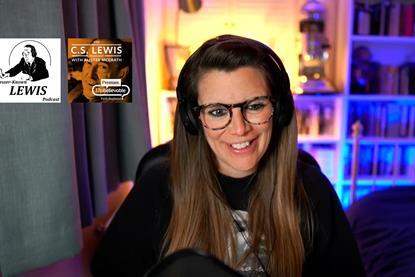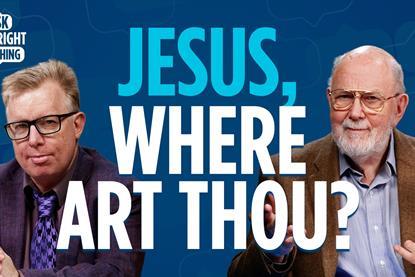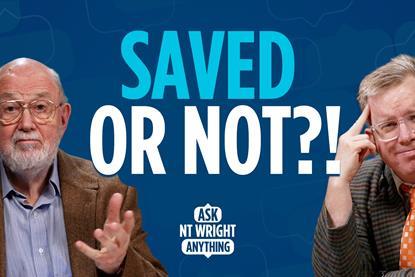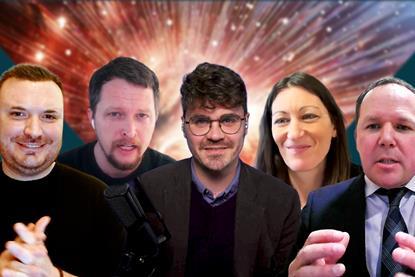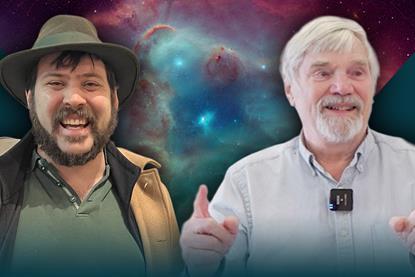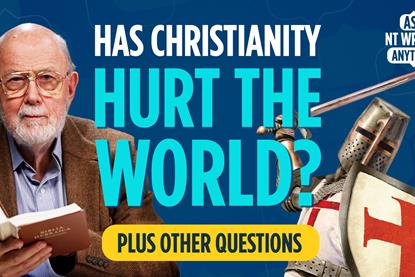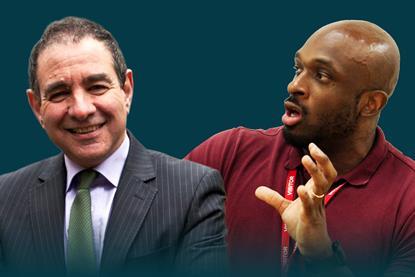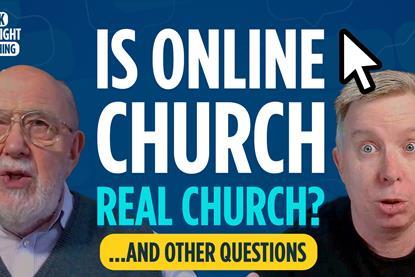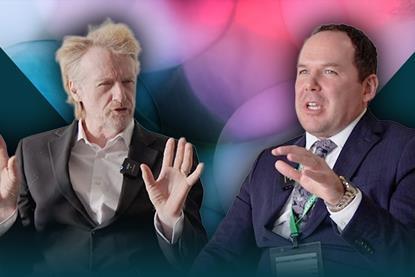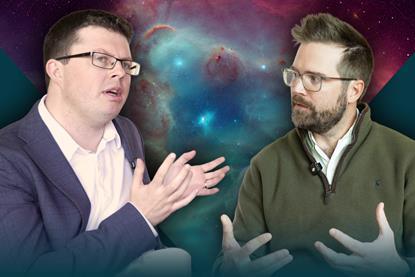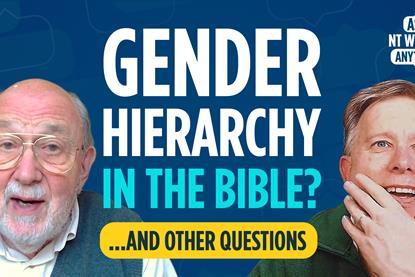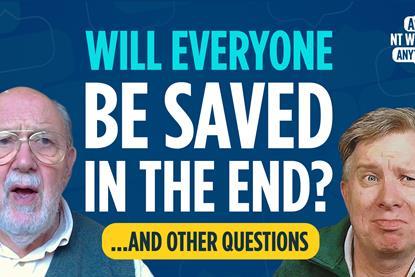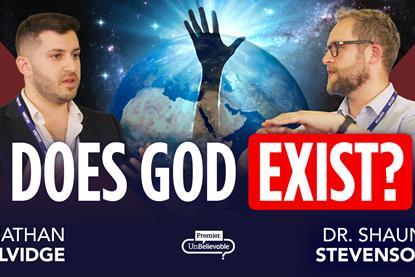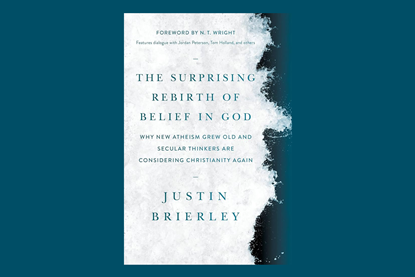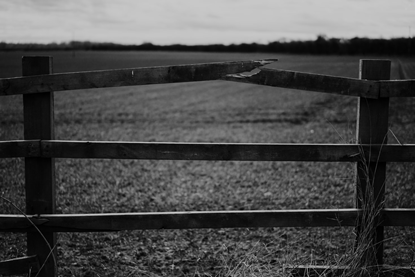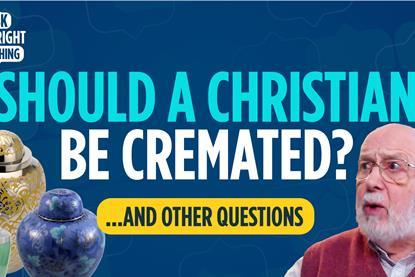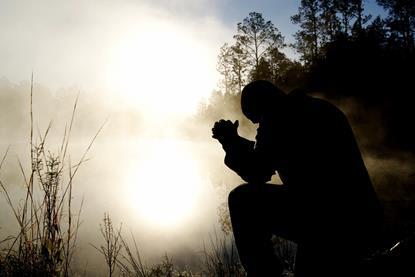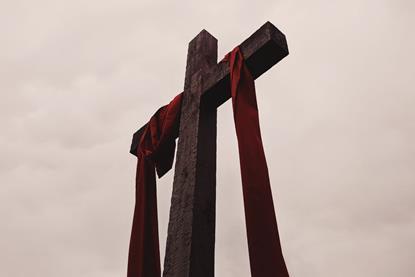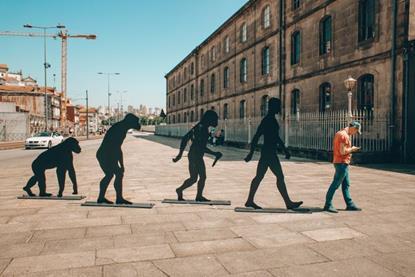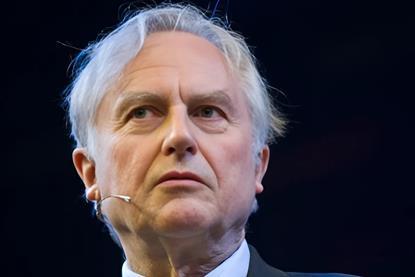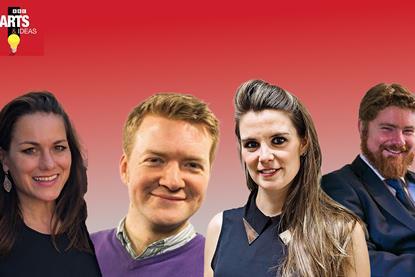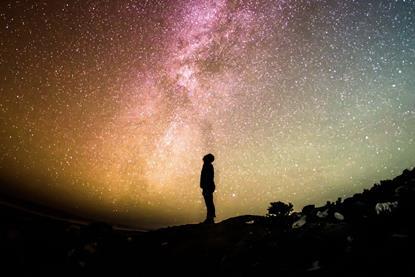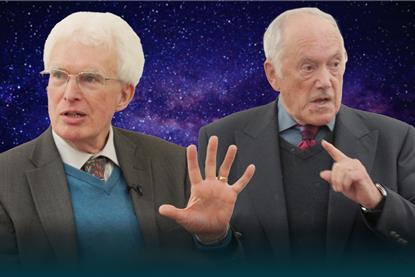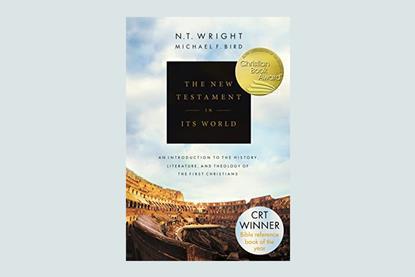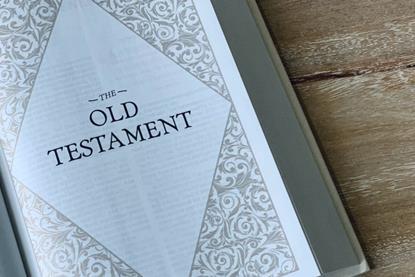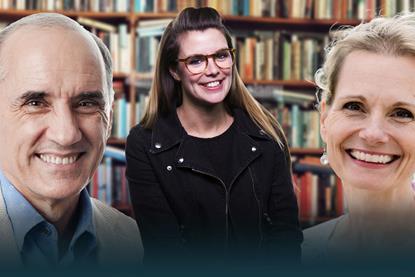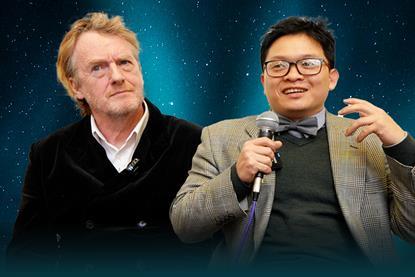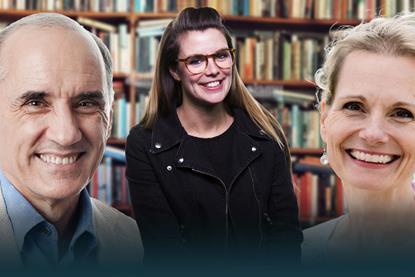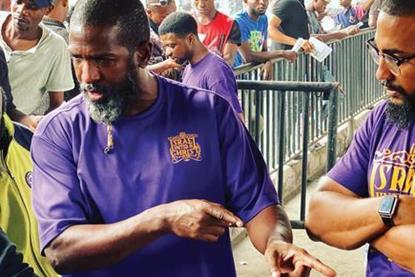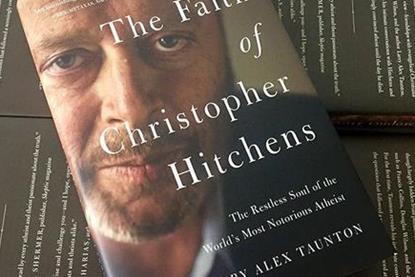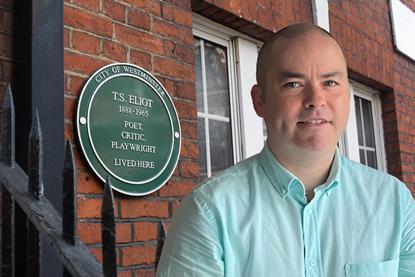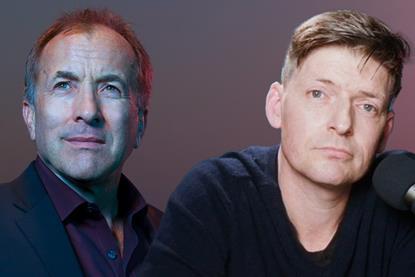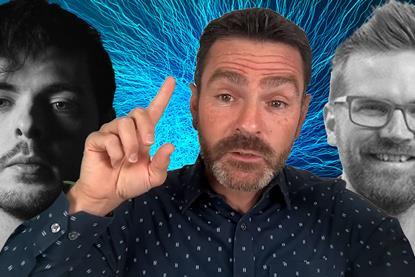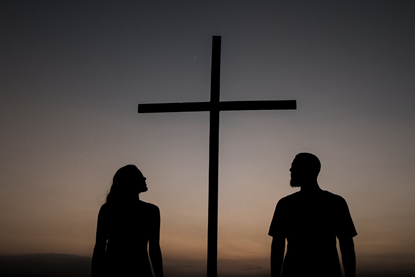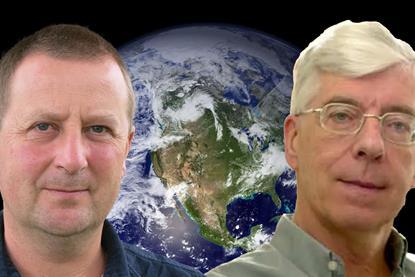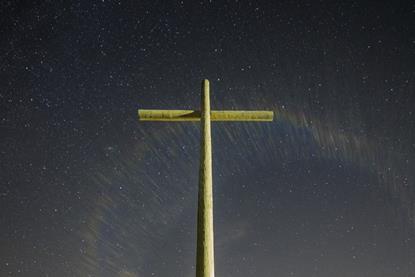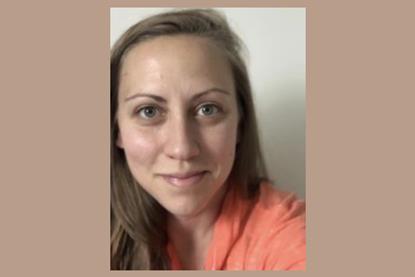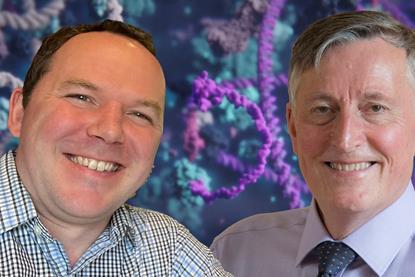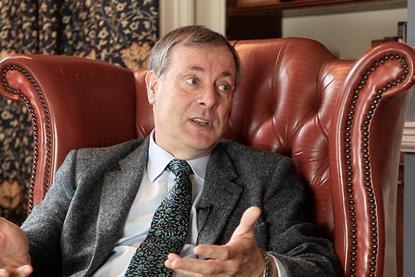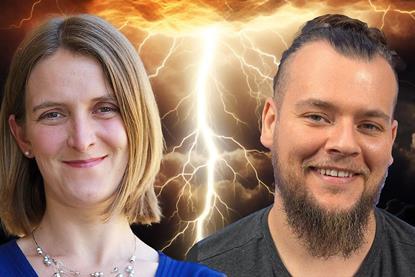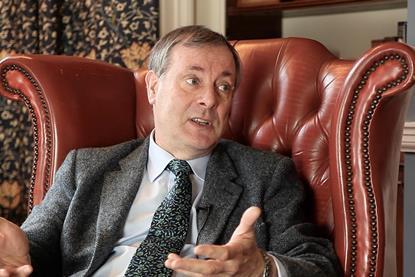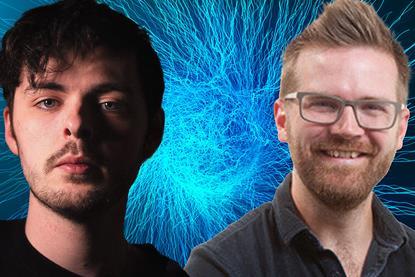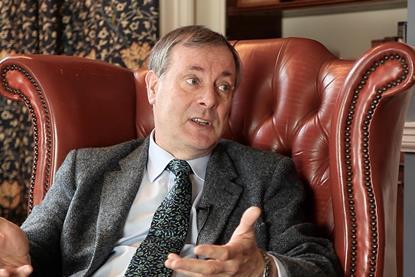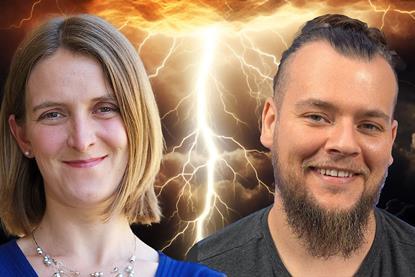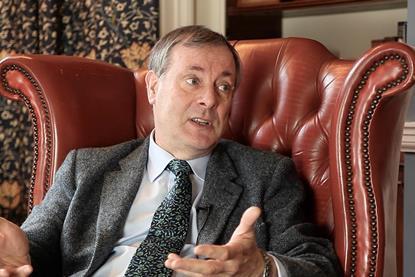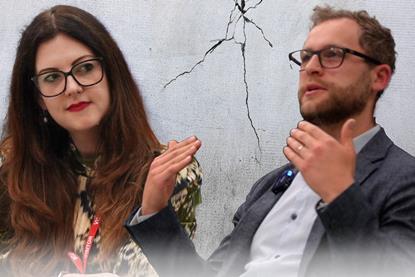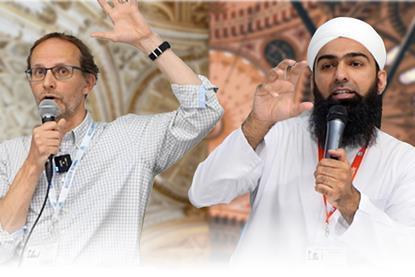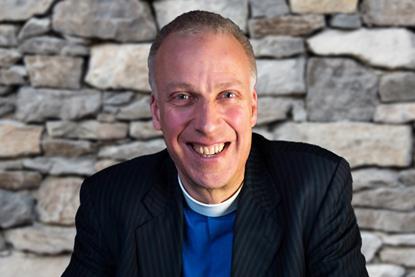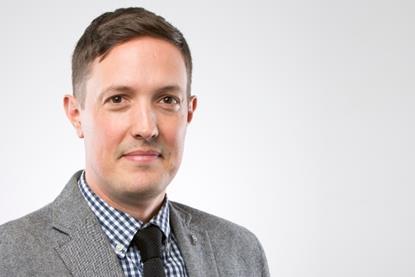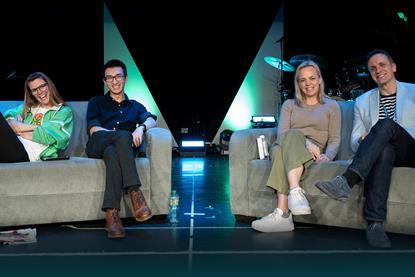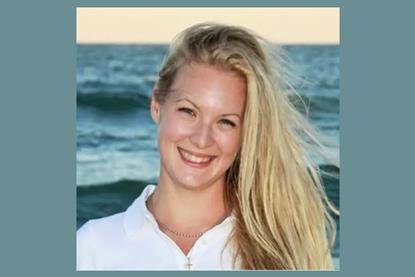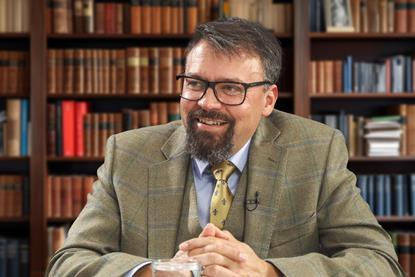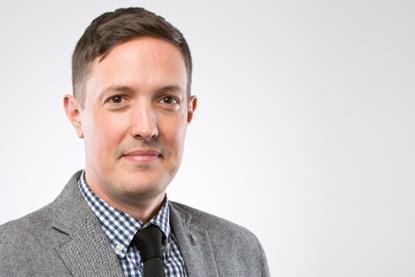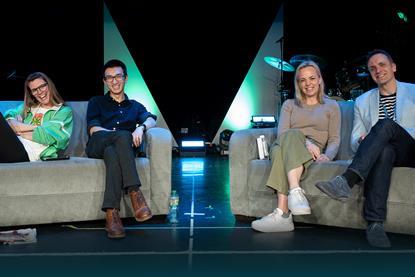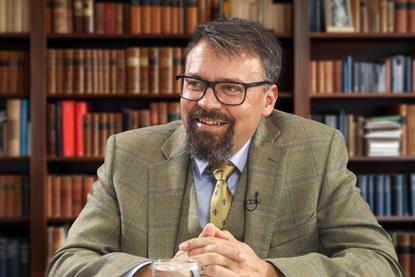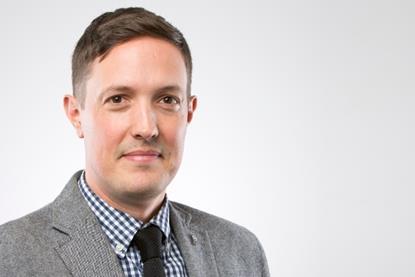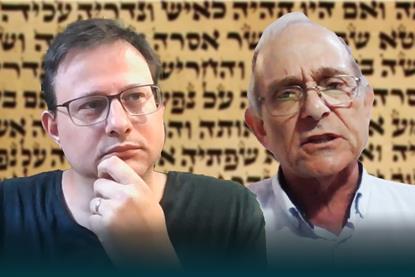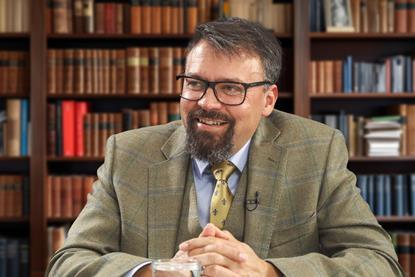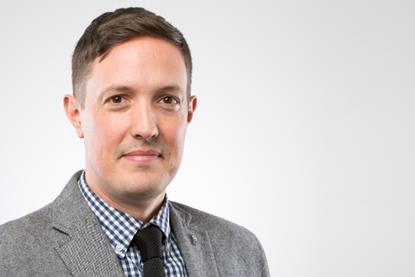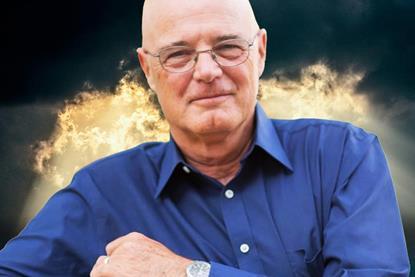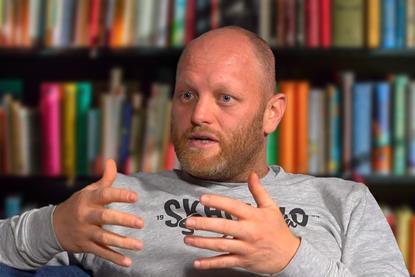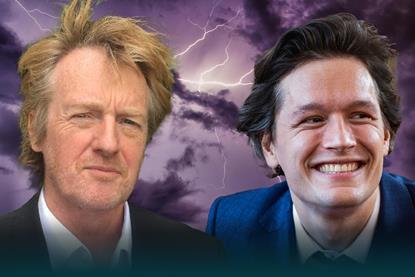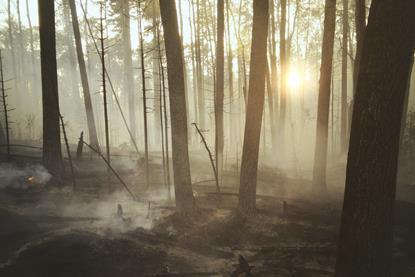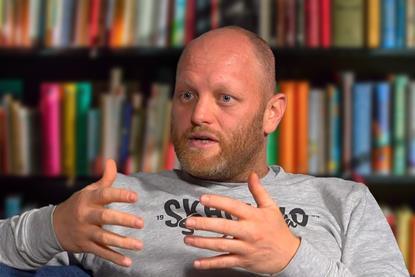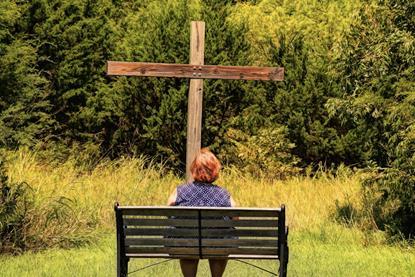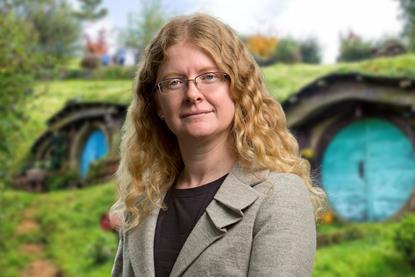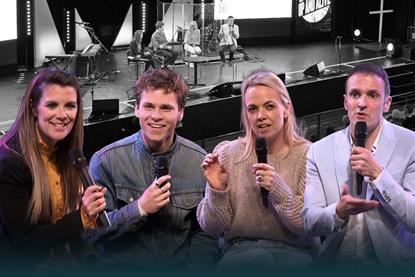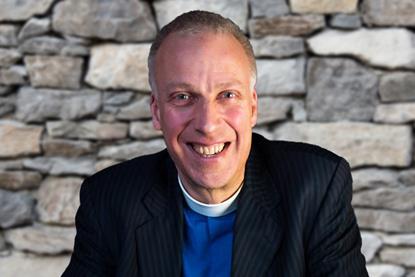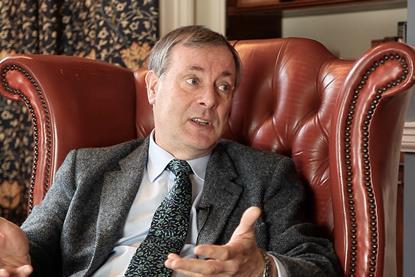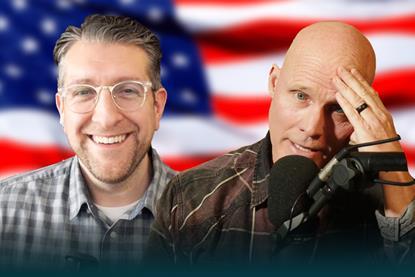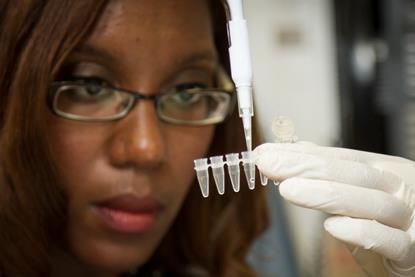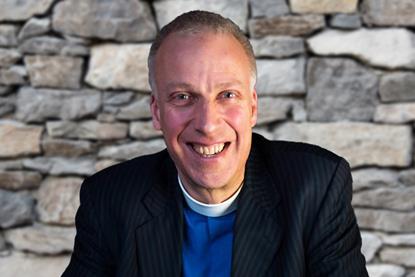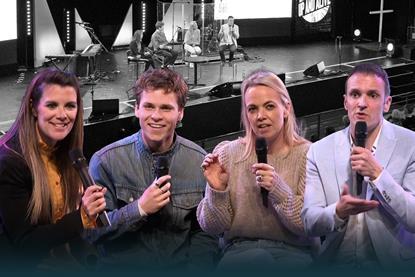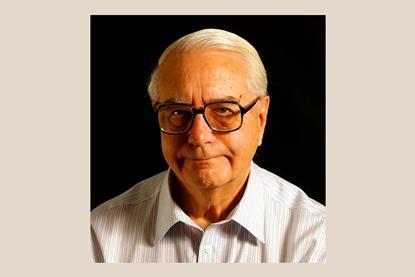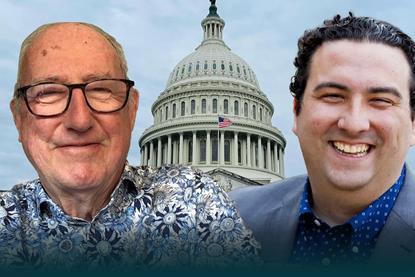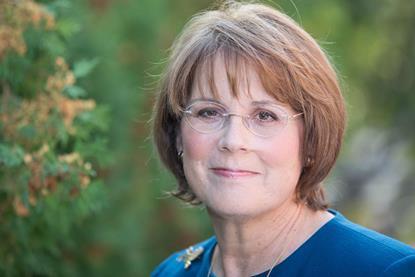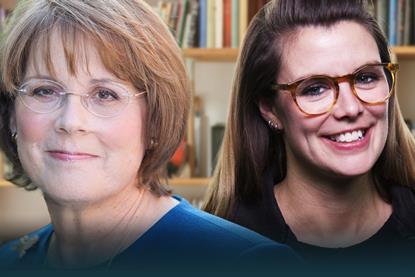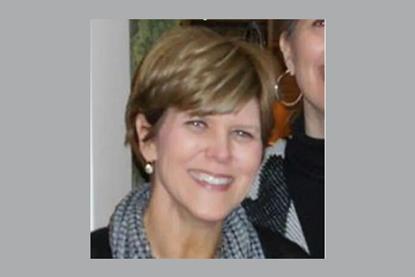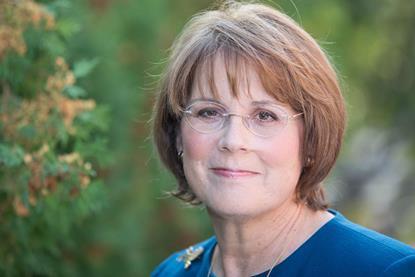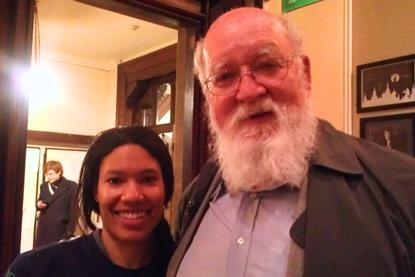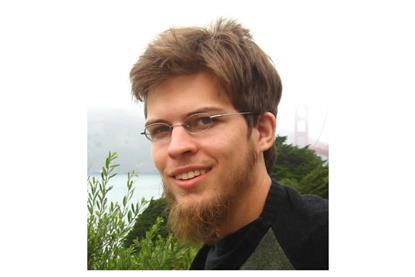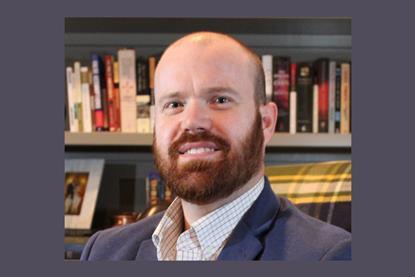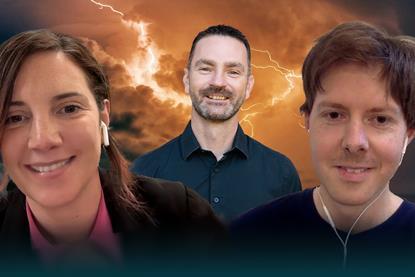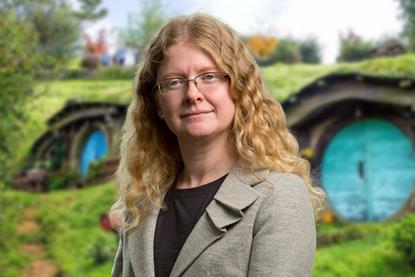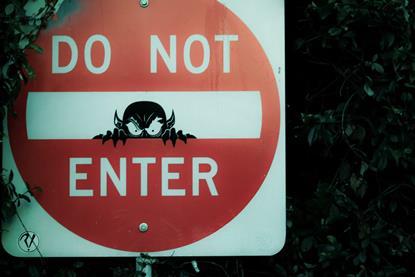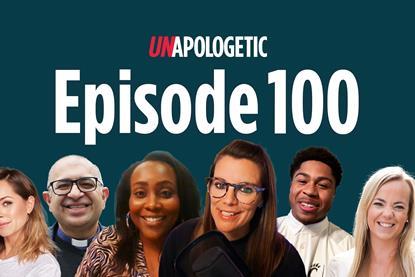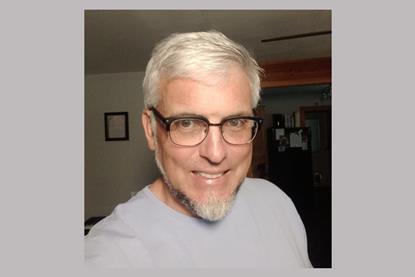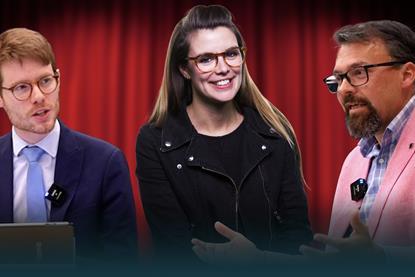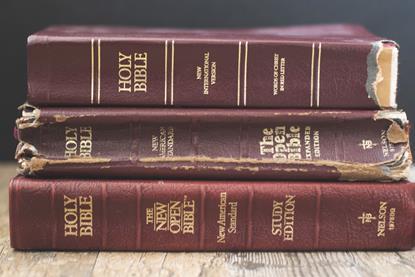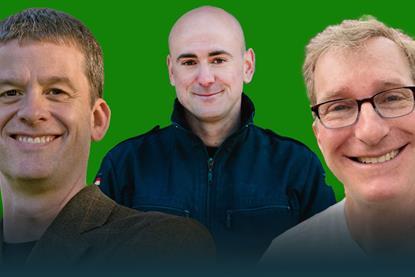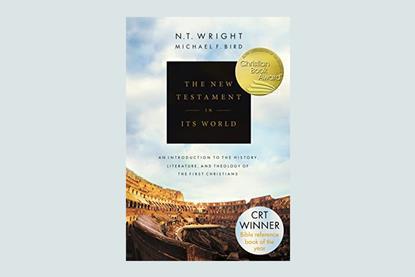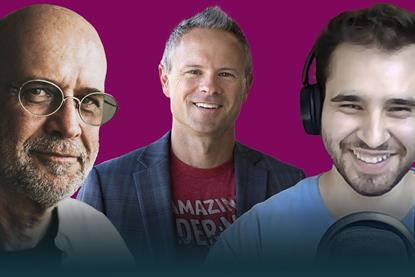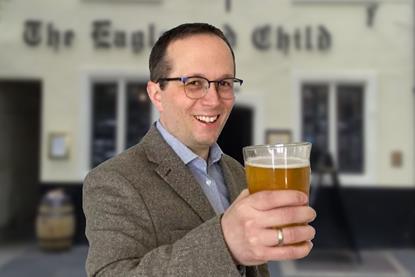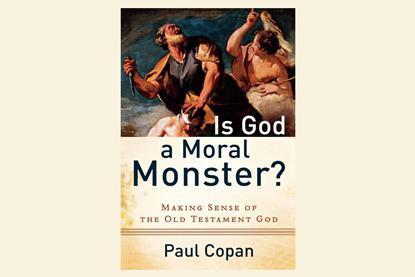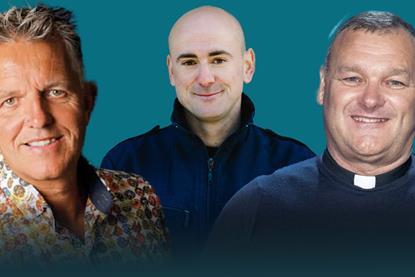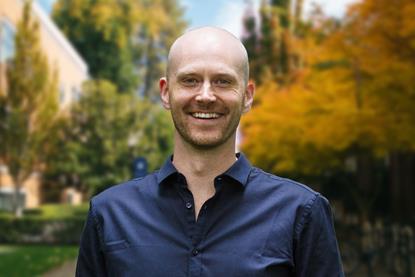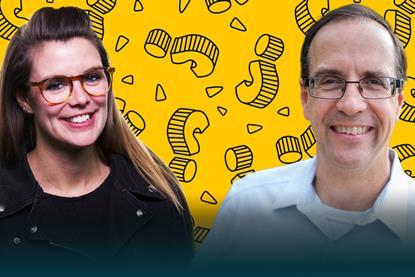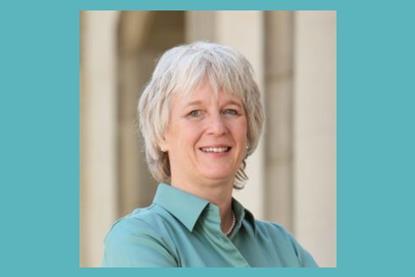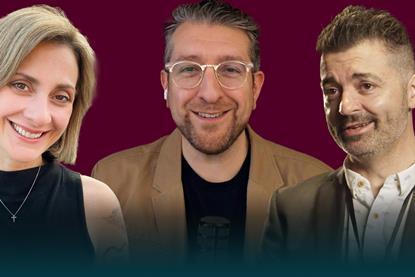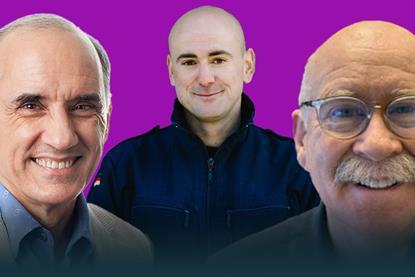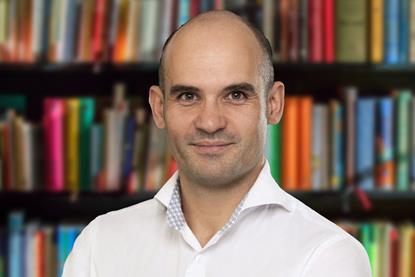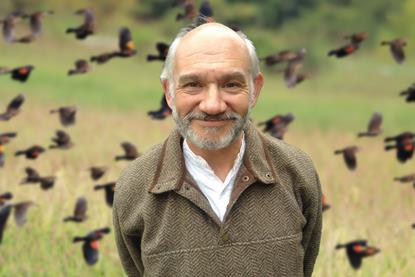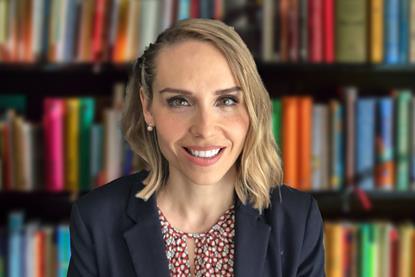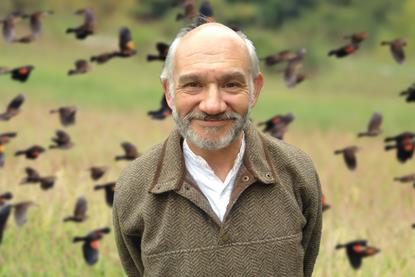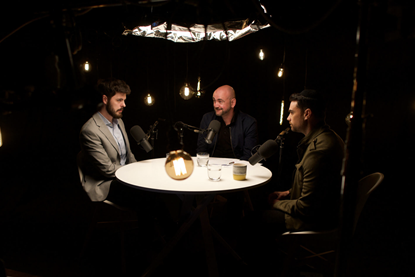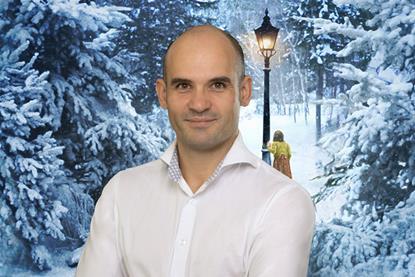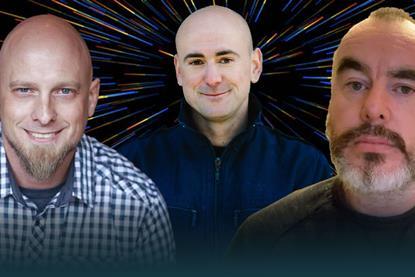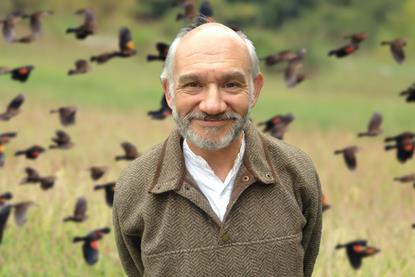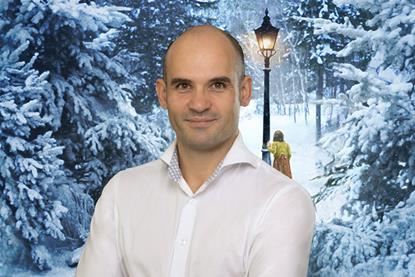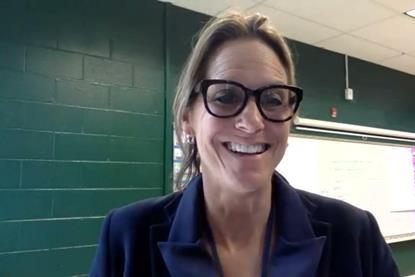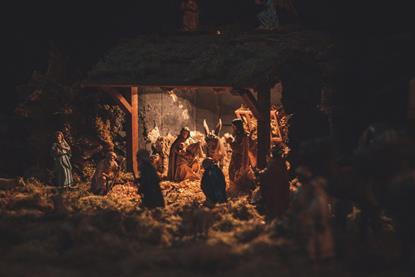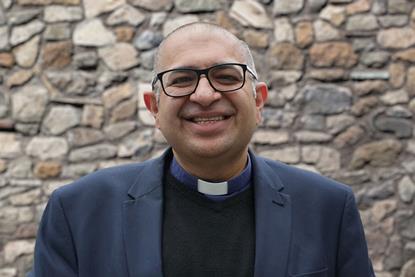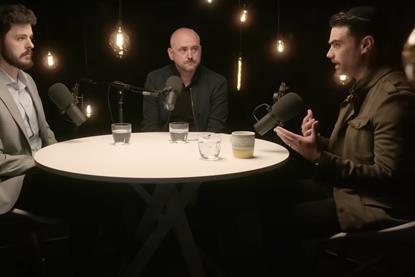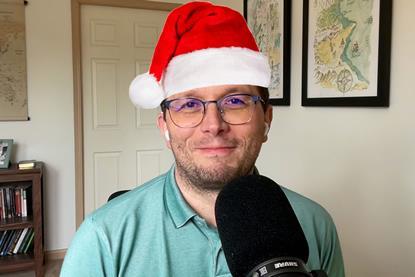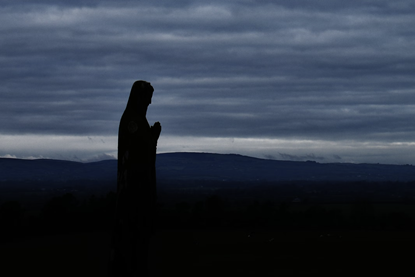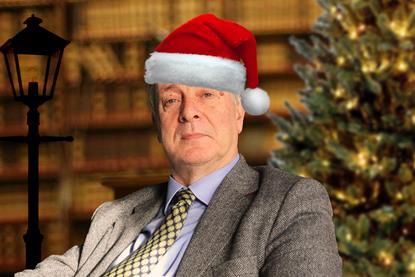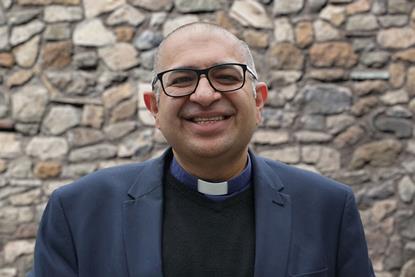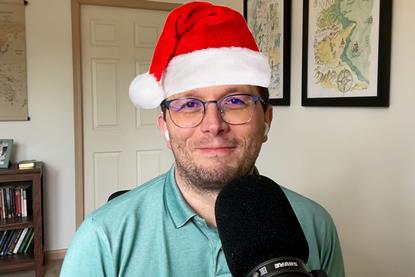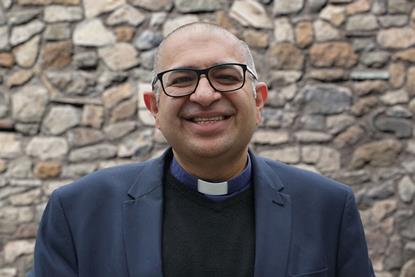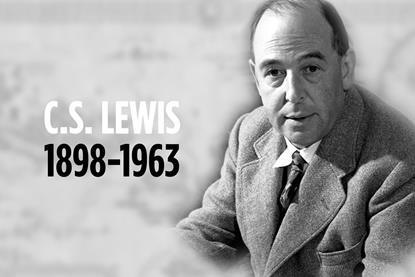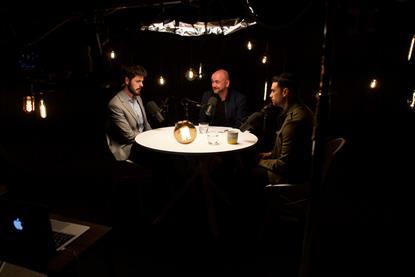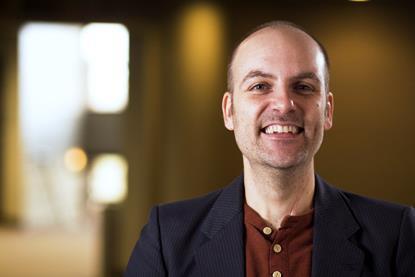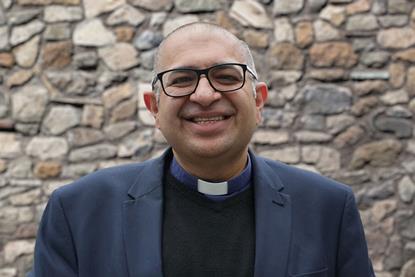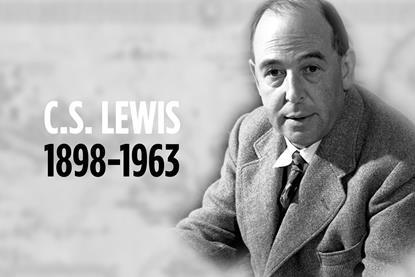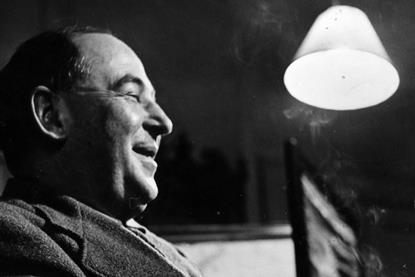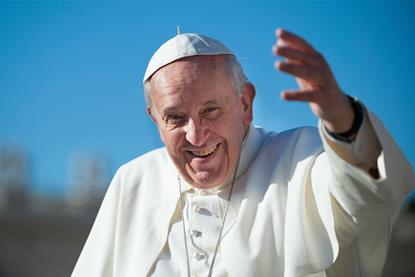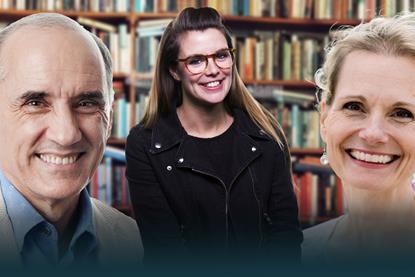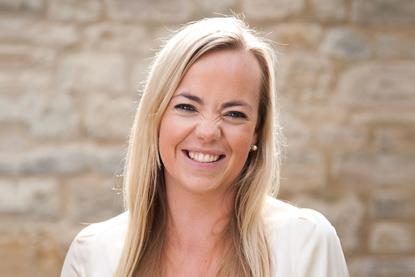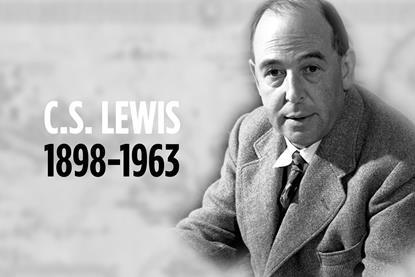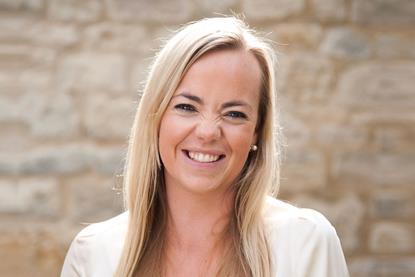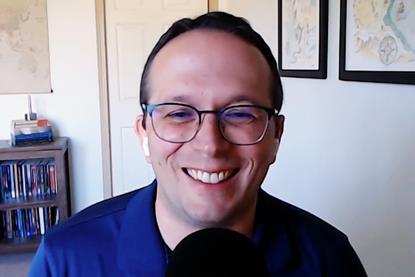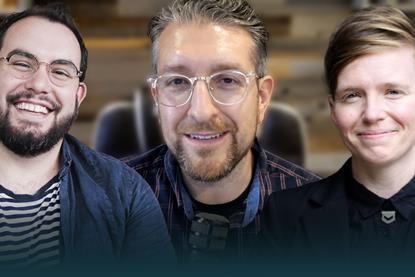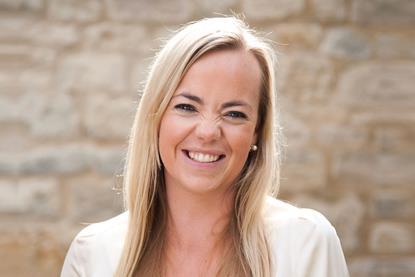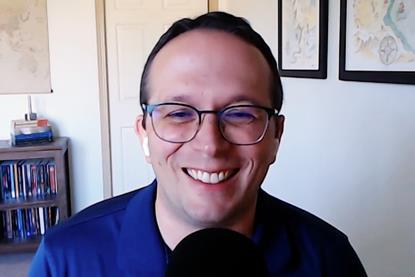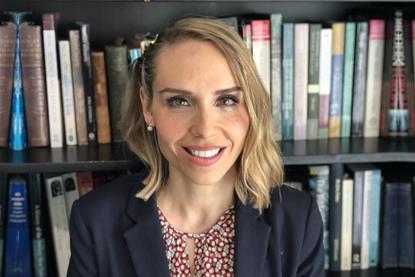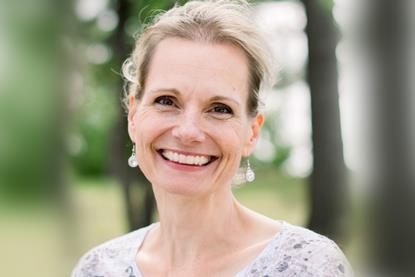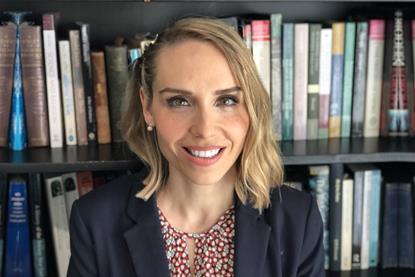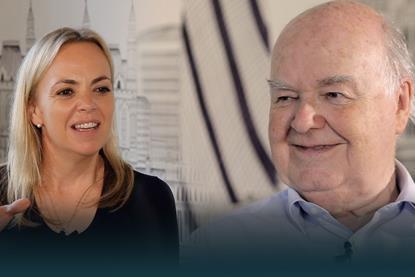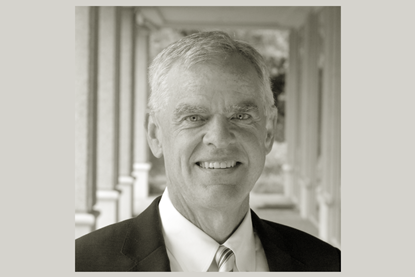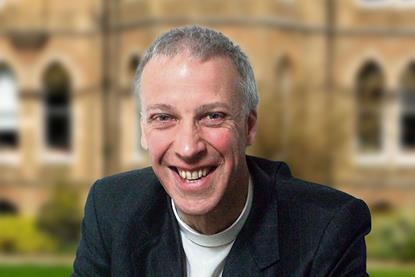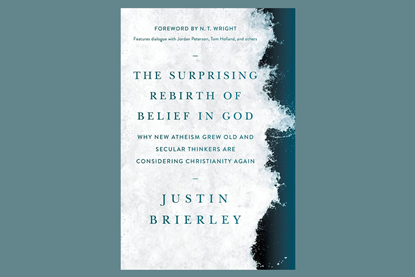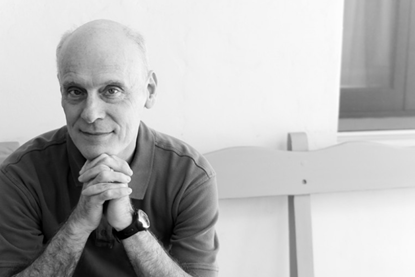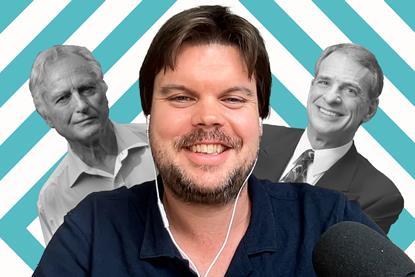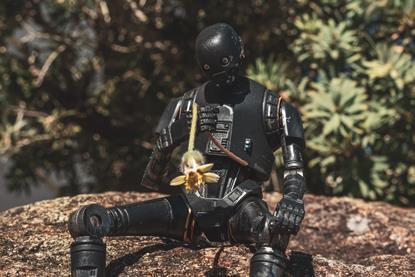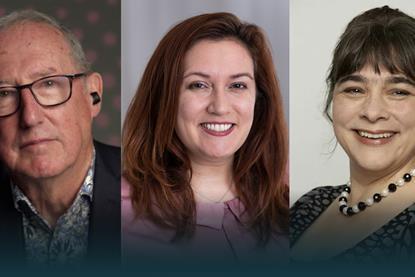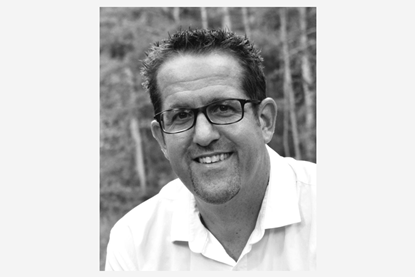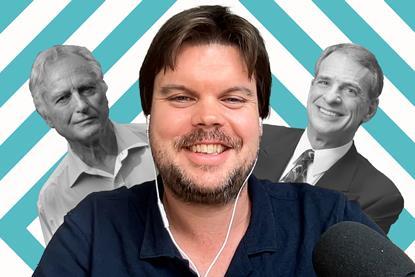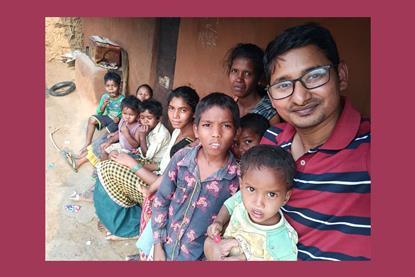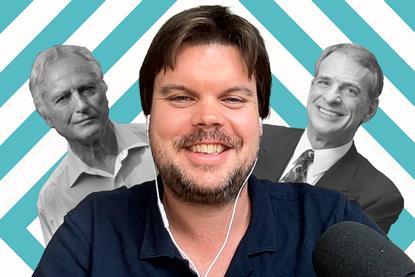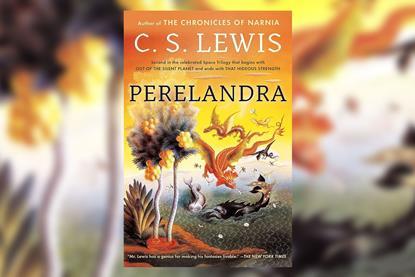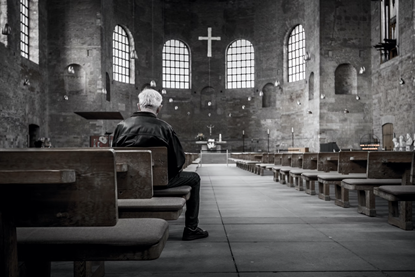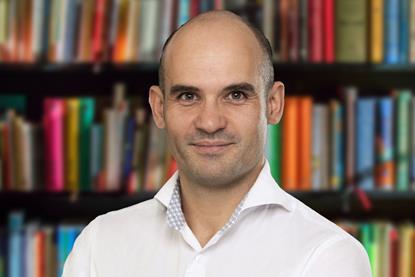Apologetics
Christian Nationalism: Biblical or Dangerous? Doug Wilson vs Mike Bird
Is Christian nationalism biblically sound - or dangerously divisive? In this episode, John Nelson hosts Doug Wilson and Dr Michael Bird for a high-stakes debate on what Christian politics should look like in a plural, polarised democracy. Should nations be explicitly Christian, or does that threaten freedom, minorities, and even faith itself? From pluralism and liberty to the risks of coercion, this conversation tackles the future of faith and politics.
#247 Ruth Jackson: “Christian Apologetics” on the Lesser Known Lewis podcast
This is a special episode taken from the Lesser Known Lewis podcast, a podcast which focuses on CS Lewis’ essays and short works, which Ruth Jackson was a guest on in 2024. She discusses CS Lewis’ speech ‘Christian Apologetics’ and provides insight into her background with Lewis.
Still waiting… for Jesus’ return?
Does your everyday work really matter to God? Why did Jesus have to be fully human and fully divine? And how should Christians live faithfully while waiting for Jesus’ return?
Is Salvation fair?
Who can be saved? What about those who have never heard the gospel? Do Christians earn rewards in heaven and what does God’s wrath really mean at the cross?
Christian Apologetics Has a Problem – And It’s Not Atheism
Premier Unbelievable host John Nelson gathers a lively roundtable to ask a timely question: what’s the current state of Christian apologetics—and where should it go next? Scientist and historian of science Sam McKee (University of Reading / Manchester Metropolitan) argues that apologetics often lags decades behind today’s life sciences, too easily dominated by creationist “marketing machines”, and too quick to platform non-experts as authorities.
Is life meaningless without God? A live school debate between Atheism UK and Christian apologist
In this live edition of Premier Unbelievable? from Aylesbury High School in the UK, stand-in host Sam McKee moderates a thought-provoking dialogue between:
Is Christianity bad?! Has religion done more harm than good? NT Wright and Mike Bird LIVE in London
N.T. Wright and Mike Bird and reunited together in person in Premier’s new London studios for a big Ask NT Wright Anything episode.
The Sanity Of Belief - Can God Explain Everything? Joshua Sijuwade vs Julius Weinberg hosted by Andy Kind
Is belief in God rational, or is it something no reasonable person should accept?
What is real church community?
Tom Wright and Mike Bird begin with a thoughtful look at church models, exploring how the New Testament envisions the people of God, why no single structure is “the” biblical one, and how modern churches can still reflect the unity and mission of early Christian communities.
Happiness, humanity, ethics, evolution… what really is the meaning of life? Sam McKee vs Stephen Law hosted by Andy Kind
Can we really know whether God exists… or is belief just a product of evolution and psychology?
Beyond Naturalism: What’s Real? Dr. Alex Carter vs Dr. Zachary Ardern - Hosted by Sam McKee
What is really real? In this wide-ranging conversation, Dr Zachary Ardern (evolutionary biologist, Wellcome Sanger Institute), Dr Alex Carter (philosopher, University of Cambridge), and Dr Sam McKee (science historian, Manchester Metropolitan University) sit down to revisit one of the oldest debates in human thought — the relationship between science, religion, and ultimate reality.
Atoms, Aliens and the Meaning of Everything: Paul Ewart vs Simon Walker-Samuel hosted by Sam McKee
Premier Unbelievable guest-hosted by Dr Sam McKee heads to John Colet School in Wendover, UK for a lively debate on science, religion and reality with Oxford atomic & laser physicist Prof Paul Ewart (Christian; former Faraday Institute director, ex-president of Christians in Science) and UCL biophysics & imaging expert Prof Simon Walker-Samuel (trustee, Humanists UK).
Gender Hierarchy, Habakuk 2:4, What bits of the Bible did Paul write? Did Paul write the Pastoral Epistles?
In this episode of Ask NT Wright Anything, Tom Wright and Mike Bird tackle tough questions on gender hierarchy, Paul’s use of Habakkuk 2:4, and the authorship of the pastoral epistles. They clarify what “submission” really means in Ephesians, explore the dual meaning of faith in Habakkuk, and discuss whether Paul wrote all the pastoral letters - and why these debates still matter for Christians today.
Bishops, Priests, finding a Church and the Universalism Question
In this episode of Ask NT Wright Anything, Tom Wright and Mike Bird tackle big questions on church leadership, finding spiritual community, and the challenge of universalism. They explore the history and purpose of bishops, how to choose a church in a divided world, and what universalism really means for salvation and Christian hope.
Does God Exist? Shaun Stevenson vs Nathan Elvidge hosted by Andy Kind
In this lively Unbelievable? debate, philosopher Dr Shaun Stevenson and Oxford’s Nathan Elvidge go head-to-head at Waddesdon High School on the question, “Does God exist?” Covering everything from the roots of religious belief to morality, evil, and free will, they challenge each other - and the audience - to think more deeply about faith, doubt, and what makes us human.
Is the Tide of Faith Turning?
Justin Brierley’s “The Surprising Rebirth of Belief in God” explores the unexpected comeback of faith in our culture, examining new data, cultural shifts, and the unique opportunities and challenges for Christians as spiritual curiosity surges once more.
Why does God allow pain and suffering? A series on the most googled questions
In the third article of this seven-part series, Bruce Miller and Ruth Jackson explore this challenging question, drawing on wisdom from faith leaders and the Christian belief in a God who suffers with us.
Will God resurrect my cremated body? NT Wright on God’s grace, the Law, and new life after cremation
In this episode of Ask NT Wright Anything, Tom Wright and Mike Bird explore the deep connections between ‘hesed’ in the Old Testament and ‘charis’ in the New, offering a rich picture of God’s love and faithfulness. They tackle the sensitive topic of cremation and Christian burial, affirming the unshakable hope of resurrection.
Does science prove God?
Sam McKee hosted a recent Unbelievable? discussion between Paul Ewart, Emeritus Fellow of Worcester College, and Phil Halper, YouTuber and Fellow of the Royal Astronomical Society, regarding the role of science in fostering or discouraging belief in God.
A Lion, a Lamb, and a Lab Coat - The Hope for Unity in Science and Faith
The final part of a four-part series: From Theistic Evolution to Intelligent Design: Why I changed my mind
Does life have a purpose? Answers to the seven most googled questions about God
From CS Lewis to everyday heroes, Premier Unbelievable explores where true meaning and purpose are found. Pastor Bruce Miller and others reflect on the surprising lessons of Ecclesiastes, challenging us to look beyond life “under the sun” for deeper significance.
The Blueprint and the Biopsy - Finding God in Design, Not Just Morality
Part 3 of a four-part series: From Theistic Evolution to Intelligent Design: Why I changed my mind
The most googled questions about God?
Many people today are exploring Christianity through the internet, in the plethora of online resources about the faith that exist today. So what are they asking?
Is there a God? Finding answers to the most googled questions
Far from being just “blind faith”, there are many rational and intellectual reasons to believe in the existence of God and the truth of Christian claims. Premier Unbelievable takes a quick tour through the archives to unearth some of the key arguments
The Body Will Rise - Why Easter Is the Answer to Our Deepest Longing
There’s a line in Ecclesiastes that says, “God has set eternity in the human heart.” And we feel it.
The Cross Is Not the End - Why a Torture Device Became the World’s Greatest Icon
On its surface, the cross is a strange thing to venerate. It was an instrument of torture. A public execution device.
Death Doesn’t Win - The Profound Hope of Holy Week
For 2,000 years, Christians have marked Holy Week as the most sacred stretch of time in the calendar - a journey from celebration to sorrow to resurrection.
When the Stones Cry Out - Intelligent Design and the Voice of Creation
Part 2 of a four-part series: From Theistic Evolution to Intelligent Design: Why I changed my mind
Wrestling with the Divide - Why I Couldn’t Keep Faith and Science Apart Anymore
Part 1 of a four-part series: From Theistic Evolution to Intelligent Design: Why I changed my mind
Is God Dead? The intersection of Nietzsche’s nihilism and the limits for pursuing justice
Apologist Adam Coleman considers a famous exchange between two great abolitionists, and the meaning and purpose that God gives us
A God that Cannot Not Exist? The Ontological Argument
Author Joel Furches explores one of the least understood and most overlooked rational arguments for God, and addresses its objections
Do Christian believers in evolution miss the most important arguments?
Erik Strandness reflects on a debate between a Christian evolutionist and an atheist, and wishes some more intelligent designs were acknowledged
The deceptive simplicity of William Lane Craig’s Kalam Cosmological Argument
Philosophical reflection on infinity leads to inevitable conclusions about the nature of reality and the existence of a powerful personal creator
Dawkins the Apologist
Erik Strandness shares his reflections on the failures of ‘New Atheism’ and how the movement inspired many to return to the faith
The richer meaning within a Christian vision for the future
Erik Strandness argues that the flaws of a materialistic, secular worldview do not offer hope or meaning when compared to theism
The CS Lewis Podcast #191 New Atheism, Sigmund Freud and Narnia: Does CS Lewis still matter?
Is CS Lewis relevant today? Can he speak to a post-Christian culture? We hear from Meg Thomson, producer of Freud’s Last Session, a film starring Anthony Hopkins as Sigmund Freud and Matthew Goode as CS Lewis, Dr Jem Bloomfield, an assistant professor at the University of Nottingham and author of Paths in the Snow and Justin Brierley, author of The Surprising Rebirth of Belief in God.
Divine Humility: The Astonishing Reality of God’s Arrival in a Manger
Erik Strandness delves into the profound humility of the Christmas story, exploring how the birth of Christ in a manger challenges our expectations of divinity and invites us to encounter God in an entirely new way
Was the Universe designed for us?
Two teleological arguments for God summarised and explained
God vs Science Debate with Peter Atkins and Keith Fox
Ruth Jackson returned to school to host this lively debate between Peter Atkins, renowned atheist and scientist, and Keith Fox, Christian biologist and theologian. In front of a live young audience, they explore one of the most profound questions: Is religion, just wishful thinking? Atkins and Fox tackle the big questions at the intersection of science, faith, and ethics, including: Are we just matter? Can science explain everything, or are there questions beyond its scope? Will further advancements in technology—like space exploration, genetic modification, and AI override any need or belief in God? From the accusation of “playing God” in genetic engineering to the nature of consciousness in artificial intelligence, this conversation challenges assumptions about what it means to be human and the role of faith in a scientific world.
#235 The New Testament in its World with special guest and co-author Mike Bird (Classic)
Today’s episode features a special guest - renowned Australian Bible scholar, co-authored and friend of Tom’s, Mike Bird. Together, they delve into their groundbreaking collaborative work, “The New Testament in its World: An introduction to the history, literature, and theology of the first Christians” which both combines and unpacks years of Tom’s major study into this seminal volume.
Is the Old Testament Story of Israel Historically Reliable?
Verifying every fact in the OT using archaeological evidence is not possible, but there is good justification for certain key aspects of ancient Israel’s story
The CS Lewis Podcast #184 Dan Barker and Carolyn Weber: Are Lewis’ arguments flawed?
In the second part of Dan Barker and Dr Carolyn Weber’s discussion about CS Lewis’ relevance, Dan points out some of the holes he perceives in Lewis’ beliefs. On the opposite side of the debate, Carolyn shares how she became a Christian, highlighting elements of her story that echo Lewis’ own and looking at how Lewis’ writing greatly influenced her decision.
The Divine Debate: Is Morality Rooted in God? Atheist Stephen Law vs Matthew Su hosted by Ruth Jackson
Is faith necessary for a moral life? Is belief in God essential for a meaningful moral framework, or can secular philosophy provide all the answers? This week on Unbelievable?, host Ruth Jackson welcomes two dynamic thinkers to explore the profound debate of God’s role in our moral universe.
The CS Lewis Podcast #183 Dan Barker and Carolyn Weber: Is CS Lewis still relevant?
On November 22nd 1963, Clive Staples Lewis – Jack to his friends – died in Oxford, England. However, 61 years after his death, is CS Lewis still relevant? We hear from former pastor-turned atheist, Dan Barker, who suggests that many of Lewis’ arguments are fundamentally flawed. Literature professor, Dr Carolyn Weber, highlights where she disagrees with Dan and shares some of her story about coming to faith at Oxford University, in part through CS Lewis.
Who are the Black Hebrew Israelites and how do their beliefs differ from mainstream Christianity?
Groups with this title may have risen to fame due to negative publicity – but they share things in common with other non-Christian religions
Christopher Hitchens was a ‘heretic’ of the New Atheist cause
Contrary to perception and to the opinions of many of his fellow atheists, the late writer perceived aspects of religion to be positive and did not want it to be eradicated – just sidelined
The morality of the Old Testament God is justified by his holiness
Apologist Joel Furches argues that the accusations of ‘immorality’ against the Old Testament deity are resolved by his purity, and the solution that is offered through Jesus Christ
The CS Lewis Podcast #181 Curtis White: What did TS Eliot and Lewis think of each other?
Dr Curtis White’s PhD focuses on the relationship, work and theology of CS Lewis and TS Eliot. Here, he highlights some of his thoughts on this topic as well as sharing how Lewis was integral to his own faith journey. White also talks about the upcoming CS Lewis Symposium in Belfast, which John Brown University is providing financial support for.
The Great Morality Debate: Secularism vs. Christianity with Dr Michael Shermer and Rev. Glen Scrivener
This week on Premier Unbelievable?, we tackle one of the most fundamental questions in philosophy:
Is happiness enough, or do we seek purpose and fulfilment?
Why suffering, instead of being a reason to turn us away from God, can be the way that we find him
Christian Philosopher Vince Vitale Stunned by Free Will Showdown: Alex O’Connor vs. Alex Carter
Recently on Unbelievable you may have seen Ruth Jackson host an energised debate about free will between Alex O’Connor – host of the Within Reason podcast and the highly popular YouTube channel, Cosmic Skeptic – and Dr. Alex Carter – who is the Academic Director for Philosophy and Interdisciplinary Studies at the University of Cambridge, Institute of Continuing Education.
What is the gospel? The message of victory over sin and death contained in the Christian message
The dialogues of Jesus in the Gospels and his death and resurrection come together to offer eternal life and the promise of liberation from the difficulties of this world
Science, faith and the future of humanity Denis Alexander v Julian Baggini hosted by Andy Kind
In this episode of Unbelievable?, host Andy Kind brings together two thought-provoking voices to explore the intersection of science, faith, and the future of humanity.
Does believing that all will be saved ignore the fundamental reality of sin?
Apologist Erik Strandness ponders on an important topic that can be ignored in the debate over ‘universalism’ – what we are to be saved from - the reality of sin and Jesus’s central role in its defeat
From meaningless atheism to the satisfying answers of faith: the story of Christine Mooney-Flynn
A former atheist finds God at the end of a long spiritual quest through nihilism and despair
Christianity does not hold back technological progress: it inspires it
The Bible is a book written by ignorant “Bronze Age goat herders,” according to many internet atheists across the world.
🌍✨ Should we edit the human genome, or is that playing God? 🧬 John Wyatt vs Sam McKee hosted by Andy Kind
With the revolutionary gene-editing technology CRISPR—winner of the 2020 Nobel Prize in Chemistry 🏆—we now have the power to potentially eradicate diseases that have caused untold suffering. But where should we draw the line? 🤔
Assisted suicide: Euthanasia tourism takes off in the US amid fresh push to change law in Britain
Today we pick up a number of stories and updates in the conversation around assisted suicide. Long since legal in a growing number of states in the US, a new report has detailed how things are liberalising further. Some states now permit non-residents to cross state lines solely to die, creating a new market in euthanasia tourism for those living in less liberal parts of America.
The CS Lewis Podcast #174 Alister McGrath: Can Lewis help us to find meaning?
What did Lewis mean by “big pictures” and how did he use them in his work? How can he help those struggling to find their purpose in life? Why are people so concerned about a lack of coherence and can Lewis be of assistance? Can creeds help us? Professor Alister McGrath explores how Lewis can be a pathfinder and a resource for the Christian life.
How the Universe Points to God: a summary of two cosmological arguments
Apologist Clinton Wilcox explores two fascinating rational justifications for believing in God that use the science and philosophy of the Universe
A Christian explanation for Natural Evil from the Dirckx vs Woodford debates
An apologetic for natural disasters using the Genesis creation story
The CS Lewis Podcast #173 Alister McGrath: How do we tell good stories?
How can our individual stories find new meaning and significance from Christianity’s “grand story”? In what ways did Lewis tell the Christian story? And what can we learn from this? How do we share our own story? Professor Alister McGrath explores how we can use Lewis as a resource for our Christian life and looks at some of Lewis’ favourite stories, including The Pilgrim’s Regress.
Free Will vs. Determinism: Who’s Really in Control?Alex O’Connor vs Prof Alex Carter hosted by Ruth Jackson
Are we the masters of our fate or just dancing to the universe’s tune? 🤔 This week on Premier Unbelievable, Ruth Jackson moderates a gripping debate on one of philosophy’s oldest questions: Do we truly have free will?
The CS Lewis Podcast #172 Alister McGrath: Why do stories matter?
Which stories impacted Lewis as a young child? Why is story so important? How does imagination help convey truth? What did Lewis mean by “myth” and how did that impact his thinking? Where did JRR Tolkien help with this? How do we allow the Christian story to shape our own? Professor Alister McGrath explores how we can use Lewis as a resource for our Christian life.
Why Doesn’t God Stop Suffering? Stephen Woodford vs Sharon Dirckx Debate Hosted by Ruth Jackson
Round two on Unbelievable! Dr. Sharon Dirckx vs. Stephen Woodford heats up the debate on Christianity’s impact on human values.
The CS Lewis Podcast #171 Alister McGrath: Spiritual disciplines, young people and the academy
Professor Alister McGrath continues to explore how we can use CS Lewis as a resource for our Christian life. How did Lewis’ conversion change his life? What habits did he put in place to establish a rhythm of life for his faith? In what ways does Lewis speak to Christian academics? What inspiration can writers draw from Lewis? Does he offer any advice for young people living out their Christian faith today?
What is ‘truth’ in a post-truth world? Live debate with Kristi Mair vs Dr Shaun Stevenson
Welcome to this week’s Unbelievable? Podcast! 🎙️ Today, we dive into some profound and challenging questions surrounding the concept of truth in our modern, post-truth world 🌍. Recorded live, this episode features an engaging debate between two distinguished scholars: Kristi Mair 📚, Apologist, Author, and Lecturer at Oak Hill Seminary, who is completing her PhD in Philosophical Theology, and Shaun Stevenson 🧠, a Lecturer in Philosophy at MMU with a particular interest in the philosophy of death.
Are all religions HISTORICALLY verifiable? 📜 Christian vs. Muslim ⚡️
Welcome to today’s Unbelievable Debate, recorded live at St Michael’s Aylesbury, where two distinguished scholars, Robert Scott and Muhammad Yasir Al-Hanafi, engage in a thought-provoking debate on the historical verifiability, truth, and societal contributions of their respective faiths: Christianity and Islam.
#226 Why bother improving the world? Can Christians attain perfection? (Classic)
Why bother with earth and not just create heaven? Why try to make the world a better place if God is going to fix it? Is the world getting better or worse because of Christianity? Can Christians achieve perfection in this life, as Wesley claimed? Tom Wright answers listeners questions on the ‘now-and-not-yet’ of new creation.
Should Christians break the law? Civil disobedience, climate protest and heavy-handed policing
A landmark court case in the UK recently saw five radical climate activists jailed for up to five years for their role in organising the blocking of a major motorway to protest against fossil fuels.
Unapologetic: #115 Michael Lloyd: Culture wars, creativity and relativism
Could a decline in creativity and beauty be why the Church has become increasingly irrelevant and unlikeable? What are culture wars and how should we respond? Is relativism flawed and what is the alternative? Does human creativity point to God? Rev Dr Michael Lloyd, principal of Wycliffe Hall, shares his thoughts about culture, creativity and The New Renaissance Project.
The CS Lewis Podcast #168 Philip Tallon: What if God isn’t good?
Did Lewis want to rewrite some of his earlier work on suffering in light of his own experience of pain and loss? Did Lewis doubt the existence of God or question his character during these times? What words of encouragement would Lewis give to those in the throes of suffering? Dr Philip Tallon explores A Grief Observed and The Problem of Pain. He also shares how to help younger readers engage with Lewis.
Does the Bible condone slavery? #NoQuestionOffLimits Amy Orr-Ewing, Ben Thomas, & Ben Chang hosted by Ruth Jackson
Joining us on the panel is the renowned public theologian and author of several books including Why Trust The Bible? Dr. Amy Orr-Ewing, Dr. Ben Thomas, an international speaker and consultant anaesthetist from OCCA the Oxford Centre for Christian Apologetics, and Dr. Ben Chang, an A&E doctor and author of Christ and Culture Wars.
Women in apologetics: From doubter to proclaimer
Although Kristen Davis grew up in church, profound doubts kept God from being real to her. Everything changed when she discovered apologetics and biblical archeology. Apologist Joel Furches shares her story
Unapologetic #114: Joe Boot: Resurrection, miracles and climate change
Is there any proof for the resurrection of Jesus? Are miracles a genuine possibility? How should we respond to global injustice and environmental breakdown? What practical ways can we use apologetics in everyday situations? We hear from Rev Dr Joe Boot, founder and president of the Ezra Institute for Contemporary Christianity. This interview was recorded in front of a live audience at Holy Trinity Church, Aylesbury in partnership with Aylesbury Vale Youth For Christ.
The CS Lewis Podcast #167 Philip Tallon: How do hell, the Fall and beauty fit into Lewis’ theodicy?
How does Lewis perceive the Fall? Is he able to reconcile it with an evolutionary model? Where does the cross feature in The Problem of Pain? What did Lewis think of hell? In what ways does Lewis help us to recognise beauty and aesthetics in our discussions around theodicy? We continue our conversation with Dr Philip Tallon.
“Why didn’t God heal my Dad’s cancer?” (and other questions) with Amy Orr-Ewing, Ben Thomas, Ben Chang hosted by Ruth Jackson
Ever find yourself asking tough questions of God? Struggling to see His goodness and wondering, “Are you really there, God?”
Unapologetic #113 Joe Boot: Is there a role for apologetics in culture?
Rev Dr Joe Boot, founder and president of the Ezra Institute for Contemporary Christianity, explores what shapes and drives culture. What are the cultural implications for certain world and life views? Is there a place for Jesus in politics? This interview was recorded in March with a live audience at Holy Trinity Church, Aylesbury in partnership with Aylesbury Vale Youth For Christ.
The CS Lewis Podcast #166 Philip Tallon: Is pain a megaphone?
Can pain ever be good for us? What about children with cancer? How do we account for animal suffering? Will our pets be in heaven? Does our theology of heaven impact our thoughts around suffering? Dr Philip Tallon shares his thoughts about Lewis’ The Problem of Pain.
Can we know God? Phil Sumpter vs Berel Dov Lerner hosted by Andy Kind
Explore the intricate and enlightening conversation between scholars Beryl Dov Lerner and Phil Sumpter as they delve into Jewish and Christian interpretations of scripture, covenants, and theological modesty. This engaging debate asks ‘Can we know God?’ and sheds light on the nature of God, the divine-human relationship, and the crucial role covenants play in both traditions.
How churches can embrace science: insights from scientist-Bishop Richard Cheetham
Former Bishop Richard Cheetham, with a background in physics and theology, argues for a harmonious relationship between science and faith. Discover how churches can engage with scientific advancements to enrich their ministry.
Ask NT Wright Anything #225 Will animals go to heaven? Are NDEs real? Is there ‘free will’ in heaven? (Classic)
In this episode, Tom dives into listener questions about heaven and the new creation. Discover whether free will still exists in heaven, what near-death experiences can reveal, and if we’ll be reunited with our loved ones and pets. Tune in for an enlightening discussion on the afterlife and beyond!
There’s a brand new argument for the existence of God: here’s a simple(ish!) explanation of the ‘problem of psychophysical harmony’.
Theism has been a hot topic in philosophy in recent years, and many academics now say there are very good arguments for the existence of God on the table.
Unapologetic #112 Joe Boot: Why believe?
What is cultural apologetics? Can a biblical worldview make sense of human experience? What are some of the biggest objections to the Christian faith? Rev Dr Joe Boot, founder and president of the Ezra Institute for Contemporary Christianity shares his thoughts. This interview was recorded in front of a live audience at Holy Trinity Church, Aylesbury in partnership with Aylesbury Youth For Christ.
The CS Lewis Podcast #165 Philip Tallon: Is pain a problem?
Dr Philip Tallon, Associate Professor of Theology and Dean of The School of Christian Thought at Houston Christian University, unpacks one of Lewis’ earliest work of apologetics The Problem of Pain. What are the critiques of this book and can any of these challenges be overcome?
Life after doom: how to live a life of wisdom, resilience & love in unpredictable times with Brian McLaren hosted Andy Kind
How do we live well with nations, ecosystems, economies, religions, and other institutions in disarray? Unbelievable host Andy Kind seized the chance to talk with writer and activist Brian McLaren. Once banned reading for a young Andy Kind when he first embraced his faith, McLaren now joins him for a face-to-face conversation. Have we crossed tipping points towards an inexorable tide of doom?
Ask NT Wright Anything #224 Is the world doomed? Global justice and climate change (Classic)
Tom answers questions from listeners on whether the world is getting better or worse, on poverty and economic justice, and what climate change activism means for the theology of new creation.
The CS Lewis Podcast #164 Johan Erasmus: Coming to faith via Dawkins and Lewis
Following the death of his father as a child, Afrikaner pastor Johan Erasmus struggled to find a place where he could ask sceptical questions about faith, God and the Universe. During this time he discovered CS Lewis, but also Richard Dawkins, Sam Harris and Christopher Hitchens.
Is belief in an evil God more plausible than belief in a good God? Stephen Law vs Jack Symes hosted by Vince Vitale
Did you hear the one about the three philosophers? Yes, on Unbelievable? 👀 🧠 🎙️In this episode, Oxford philosopher Stephen Law, the main proponent of the Evil God Challenge, argues that the evidential problem of evil challenges the belief in a good God. ⚡️
Ask NT Wright Anything #223 Pastoral questions on porn, personal tragedy and coming back to faith (Classic)
Tom answers listener’s pastoral questions including a person racked by guilt over whether his wife’s miscarriages were a judgment on his porn addiction, a family wrestling with the death of a family member, and someone on a journey back to faith but unsure where to begin.
Unapologetic #110 Johan Erasmus: Were the New Atheists right?
Following the death of his father as a child, Afrikaner pastor Johan Erasmus struggled to find a place where he could ask sceptical questions about faith, God and the Universe. During this time he discovered CS Lewis, but also Richard Dawkins, Sam Harris and Christopher Hitchens.
What will heaven be like?
Writer Steve Schramm explores important questions about the afterlife
Ask NT Wright Anything #222 What if I’m not really saved? (Classic)
Can We Lose Our Salvation? Join us this week as Tom addresses common doubts that crop up time and again from our listener’s questions. Do you ever question if you can lose your salvation? Feel unworthy to be a disciple of Jesus? Wonder if you might think you’re saved, but actually aren’t, like those Jesus refers to in Matthew 7:21-23 saying, ‘depart from me’? Today on Ask NT Wright Anything we’re sharing insightful, biblical and what we hope will be some comforting responses, to help us all as we seek clarity in our spiritual journey.
Women in apologetics – Not God’s type
Holly Ordway’s move from atheism to Christianity is reminiscent of CS Lewis’ conversion. Here, apologist Joel Furches tells her story and explores why she believes women play a crucial role in apologetics
If God is the creator and doesn’t make mistakes, what about trans people? (and other questions) Sexuality, Miracles, and Evolution: Tackling tough questions
If God is the creator and doesn’t make mistakes, what about trans people? 👀 Are miracles real and can they ever be medically verified? 🔥 In today’s episode we’re taking you to the second half of the recording of a live event we call NO QUESTION OFF LIMITS which we hosted with Spring Harvest last month.
Ask NT Wright Anything #221 Big Questions for Tom from Children: why did God make mosquitos? why does this world suffer?! did God create hell? (Classic)
Tom answers children’s questions on today’s show and tackles some of the ways we talk to children about tricky things like suffering and hell (and mosquitos!) 🦟.
Unapologetic #108 Michael Lloyd: Why did God create wasps?
Why are our prayers not answered? Where does the cross fit into the problem of suffering? Why did God create creatures like mosquitoes, poisonous snakes and wasps? Does God always get his way? Can good ever come out of suffering? Rev Dr Michael Lloyd, author of Cafe Theology, continues his discussion about evil and suffering.
The CS Lewis Podcast #161 Alister McGrath: Your questions answered
Professor Alister McGrath joined Ruth Jackson for a webinar answering live questions about CS Lewis, including how Lewis used modern media, whether there is a “modern day Lewis” and how we navigate some of the potentially racist terms within his work.
Unbelievable? God, Government and Trump: how should Christians navigate politics? Shane Idleman in conversation with Billy Hallowell
How do we speak the truth and balance love with causing offence? Join us on Unbelievable for a challenging episode dedicated to exploring how and whether Christians can engage in politics for the greater good.
Ask NT Wright Anything #220 Understanding the Concept of Satan in the Bible (Classic)
Tom answers listeners questions on the question of Satan and the powers of evil. Are we supposed to believe in a literal Satan? Explore with Tom Wright in today’s episode of Ask NT Wright Anything what the New and Old Testaments say about the devil, demons, and how Jesus counters all evil throughout his ministry and ultimately at the cross.
Matters of Life & Death: How much is too much to genetically screen your children?
In the first half of this episode we explore new research into public opinion around polygenic embryo screening. This technology allows people undergoing IVF to see what genes each potential embryo has and then choose to reimplant the one with the ‘best’ genetic make-up.
Unapologetic #107 Michael Lloyd: Why does evil exist?
Rev Dr Michael Lloyd, author of Cafe Theology, explores a number of Christian responses to evil and suffering. Which theories are the most intellectually, emotionally and pastorally consistent and satisfying? We also look at the doctrine of the fall. Why is it significant? Is it compatible with evolution? Was there a fall of angelic beings as well as humanity?
Is intelligent design a viable option?
Neonatal consultant Erik Strandness explores scientific method and the intelligent design movement in light of an Unbelievable? conversation on the topic
Is God anti-gay? (and other questions) Live Q&A with Amy Orr-Ewing, Jesse Fellingham, Ben Thomas and Ruth Jackson
Where is God in my friend’s suicide? 😭 Is God anti-gay? 👀 Do Christians and Muslim’s worship the same God?… 🔥 ☪️ ✝️ In today’s episode we’re taking you to the recording of a live event we call NO QUESTION OFF LIMITS.
Ask Nt Wright Anything #219 Why don’t I hear from God any more? (Classic)
Join Tom today as he sits down to answer a fresh batch of questions from listeners who are having trouble hearing from God.
Christians in Science: How faith helps rather than hinders my chemistry
Apologist Joel Furches speaks to chemist Edgar Andrews about Christianity, science and the Bible
Unbelievable? Is gentleness possible in politics? with Michael Wear and Roger Bolton
Can we rediscover the moral compass in politics? With crucial primaries taking place in the USA and an election in the UK on July 4 we are asking what should be the standard for behaviour of elected officials? And who decides? The discussion is hosted by BBC veteran broadcaster Roger Bolton.
Unapologetic #105 Kathy Keller: Why I changed my mind on women ordination
We continue our conversation with writer, editor and speaker Kathy Keller. Why did their sons believe her and Tim should never offer parenting advice?! What did they learn at Hopewell, Virginia that proved invaluable when planting Redeemer in New York? Why did Kathy leave seminary convinced ordination was no longer a viable option for her?
Unbelievable? Kathy Keller on anniversary of Tim Keller’s death
As we approach the one year anniversary of apologist Tim Keller’s death on May 19th, we sit down with his wife Kathy Keller, author and speaker in her own right, to discuss a number of listener’s questions
Women in apologetics: Truth matters
Julie Miller came to see how essential apologetics is when teaching English as a second language. Here, apologist Joel Furches shares a little of her story, including why she believes women play a crucial role in this area
The CS Lewis Podcast #157 Kathy Keller: One of the last people to correspond with Lewis before his death
As we approach the one year anniversary of apologist Tim Keller’s death on May 19th, we caught up with his wife Kathy Keller who corresponded with CS Lewis as a child. Why did she write to Lewis? How did he respond? What are some of the stories he shared with her? What was it like meeting Warnie Lewis? Plus, we hear the impact of CS Lewis and JRR Tolkien on Tim and Kathy and we hear whether they really did speak Elvish together at home.
Goodbye to my friend Daniel Dennett 🫶: one of the 4 horsemen of New Atheism
Apologist Alycia Wood shares her personal reflections on Professor Daniel Dennett (1942-2024) following his death in April
Christians in Science: How a particle physicist finds harmony between the Bible and science
Particle physicist Aron Wall has loved both God and science from a young age. Here, apologist Joel Furches shares some of Aron’s life and thoughts
Ask NT Wright Anything #217 Dear Tom: I’ve got questions about Marriage (Classic)
Tom delves into the complexities of marriage, addressing personal and burning questions from our listeners. From pondering the nature of married relationships in the new creation to offering advice for those on the brink of tying the knot, Tom brings wisdom and clarity in today’s episode.
For better or worse: How has Christianity impacted the intellectual heritage of the West?
Apologist Joel Furches explores Christian history and its impact today
Is atheism enough? How a militant atheist discovered Jesus in the military
Researcher Jana Harmon shares the fascinating story of how atheist Kyle Keltz began his journey towards Christianity while on guard duty in the Middle East
Unbelievable? Is there as much reason to believe in an evil God as a good God? Max Baker-Hytch vs Asha Lancaster-Thomas hosted by Vince Vitale
In the discussion on the plausibility of an all-evil God versus an all-good God, Dr. Max Baker-Hytch delivered a compelling argument that encapsulated the essence of the debate. He highlighted the inherent scepticism that arises when considering the ‘evil God’ hypothesis, pointing out that if such a malevolent deity were to exist, it would provide ample reason to doubt the reliability of our cognitive faculties.
The CS Lewis Podcast #154 Lewis and Tolkien: The final years
What were the significant points of contention between CS Lewis and JRR Tolkien? Where did they differ on theology? How did they respond to each other’s fame? What did Tolkien think of The Narnia Chronicles? Why was Lewis’ Letters To Malcolm so “horrifying” to Tolkien? Did these two Inklings fall out at the end of Lewis’ life?
Ask NT Wright Anything #215 Should we take the devil seriously? (Classic)
A bit of a twist today as we answer listener’s questions that have come in asking: are we meant to take Satan literally? Join Tom Wright as he unravels some of the intricate threads of the New and Old Testaments to uncover the biblical portrayal of the devil.
Unapologetic #100 Ruth Jackson: 100th Episode Special
Ruth Jackson shares some of her favourite moments over the last 99 episodes, including an opiate addict becoming a Christian apologist via a near death experience, an analytic philosopher on why she believes the gospel narratives are reliable, an NFL player on how he’d choose Jesus over winning the Super Bowl and a theologian exploring whether Jesus had a sex drive.
Atheism’s limits: How a sceptical neuroscientist rediscovered Jesus
Researcher Jana Harmon shares how neuroscientist Dr Rich Suplita found his New Atheism wanting, prompting him to look for answers in Christianity
Unbelievable? The resurrection: Fact or fiction? Harry Amos vs Joe Boot hosted by Ruth Jackson
Did Jesus really rise from the dead? Is there any good evidence to support the resurrection? Are alternative explanations more compelling? Can we trust the biblical narratives? Ruth Jackson hosted a live debate at a school with the help of Aylesbury Youth for Christ. She was joined by Rev Dr Joseph Boot, founder and president of the Ezra Institute for Contemporary Christianity, and Harry Amos, who moved from Christianity to “agnostic atheism” while studying philosophy, politics and economics and blogs about his experience at The Book of Amos.
Ask NT Wright Anything #213 Which Bible Translation is the best one? (Classic)
Listeners ask questions on which Bible translations we should deem as the best ones and which ones we should use on a daily basis. What makes a good translation, why doesn’t Tom capitalise ‘holy spirit’, and what does he make of Pope Francis ‘changing’ the Lords’ Prayer? Tom also discusses the process and thinking behind his own translation of the New Testament in ‘The Bible For Everyone’.
Unbelievable? Did it really happen: the Resurrection? with Mike Licona vs Larry Shapiro hosted by Andy Kind
The question of the historicity of Jesus’ resurrection has been repeatedly investigated, probed, and discussed. This week on Unbelievable we will add to the debate by asking ‘Did it really happen – the Resurrection of Jesus?’ dissecting the narratives of Jesus’ death and Resurrection. We’ve got two eminent scholars – who are good friends but with diametrically opposed beliefs on the authenticity of this pivotal event that forms the basis for the Christian worldview.
Ask NT Wright Anything #212 The New Testament in its World with special guest and co-author Mike Bird (Classic)
Today’s episode features a special guest - renowned Australian Bible scholar, co-authored and friend of Tom’s, Mike Bird. Together, they delve into their groundbreaking collaborative work, “The New Testament in its World: An introduction to the history, literature, and theology of the first Christians” which both combines and unpacks years of Tom’s major study into this seminal volume.
Unapologetic #97 Jay Y Kim: Did Jesus really rise from the dead?
Pastor Jay Y Kim explores how Holy Week brings hope. Why are we all so afraid of death? What difference does Easter make? Did the resurrection actually happen and why does it matter?
Unbelievable? Should Christians play politics? Michael F. Bird vs Stephen Wolfe hosted by Billy Hallowell
With crucial elections happening in the UK and USA this year Unbelievable is diving back the debate into politics and faith with some paradigm shifting thinkers and theologians. Strap in for this mini-series starting with Michael F. Bird (Deputy Principal & New Testament scholar at Ridley College, Australia) and Stephen Wolfe (author of ‘The Case for Christian Nationalism’).
Ask NT Wright Anything #211 Singleness, dating and being unequally yoked. Should christians date non-christians? What’s the point of it all? Puzzled and pastoral questions this week with Tom (Classic)
Help! I am a new christian and I’m worried I’m unequally yoked in my relationship? What is the biblical view of singleness? Should Christians date non Christians? Was Jesus at my mother’s deathbed? What’s the point of it all? In this episode Tom answers the personal, pastoral and puzzled questions of listeners.
Unbelievable? Is God’s love truly for all - universalism or eternal damnation? Andrew Hronich vs Jerry Walls hosted by Dr. Sean McDowell
Top apologist, Biola professor, and author Dr. Sean McDowell guest hosts Unbelievable on the topic, ‘Does God truly love everyone?’. Most Christians would say yes. At the heart of Christianity is a declaration that God so loved the world that he gave his only Son to make salvation possible for every single person. But there are very strongly held views across the spectrum about what happens when we die?
Ask NT Wright Anything #210 The Problem of Evil and Suffering (Classic)
In today’s Episode theologian and historian Tom Wright looks at listener questions on one of the biggest topics and questions the Christian faith faces today. What is the nature of free will, does Christianity truly offer an answer to the problem of evil and suffering? Will it be possible for there to be another ‘fall’ in the new creation? And the hosts of the Libertarian Christian Podcast have some questions for Tom about living as Christians in today’s world.
The CS Lewis Podcast #148 Ruth Jackson: Where it all began
The microphone is turned on Ruth Jackson as she is interviewed by David Bates from Pints With Jack. Originally broadcast in 2021 just after the launch of The CS Lewis Podcast, Ruth shares the vision behind why and how it started. Plus, shout about the show to win yourself a free copy of CS Lewis: A Life by Professor Alister McGrath.
Is God a moral monster? How Paul Copan’s book shaped his ministry
Joel Furches looks at the impact of Paul Copan’s book Is God a Moral Monster?, written in response to Richard Dawkins’ accusation that “the God of the Old Testament is arguably the most unpleasant character in all fiction”
Unbelievable? Where is God to be found when you are told your cancer is terminal? Steve Legg, Allan Finnegan and Andy Kind
Where is God to be found when facing the no-joke reality of a terminal diagnosis for cancer? Two comedians, who are both Christians, are facing just this challenge. This discussion between Steve Legg and Allan Finnegan hosted by Andy Kind will transform the way you think about terminal illness. This uplifting show explores why two men in the prime of life feel closer to God than before they received their devastating diagnoses.
Ask NT Wright Anything #209 Israel and the Second Coming (Classic)
How should Christians think about the place of Israel today? Do the Jewish people still have a distinct role in God’s purposes? The Bible says Jesus will return ‘soon’, so why hasn’t he?
The CS Lewis Podcast #147 Jason Lepojärvi: The undiscovered Lewis
Dr Jason Lepojärvi, CS Lewis associate professor of theology and literature at George Fox University and director of the CS Lewis Initiative, gives us a sneak peak into some undiscovered elements of Lewis. Did he have a theological blind spot? Why are people still so interested in him? Plus, discover more about the inaugural Undiscovered CS Lewis conference in Oregon.
Unbelievable? If God exists why does he allow suffering? The most googled questions with Bruce Miller, Ruth Jackson & Billy Hallowell
In the second of two shows on the most googled questions about God, Ruth Jackson continues her conversation with Bruce Miller, author of The 7 Big Questions: Searching for God, Truth, and Purpose.
Christians in science: How a microbiologist became an apologist
Dr Anjeanette ‘AJ’ Roberts is a microbiologist and a Christian. Joel Furches spoke to her about her faith and career
Unbelievable? Can Christians watch occult and horror content? Exploring Faith and Entertainment Jenn Nizza vs Peter Laws, hosted by Billy Hallowell
Occult-inspired imagery and storylines pervade much of popular culture. Horror has become mainstream. The debate is on entertainment choices for Christians. Should Christians watch whatever they want?
Unbelievable? What is truth? Mack Stiles and Dan Barker with host Andy Kind
Welcome to another thought-provoking episode of Premier Unbelievable! This week, brace yourselves for a captivating dialogue between two individuals with starkly divergent perspectives on Christianity, the existence of God, and the very essence of truth.
Unapologetic #89 Phil Knox: Did Jesus have favourites?
Evangelist Phil Knox continues sharing his top tips for making and maintaining friends. Why is diversity so important in friendship? How do we get the balance of fun and vulnerability? What can we learn from Jesus’ friendships?
Never again: Why we desperately need Holocaust Memorial Day
To mark Holocaust Memorial Day on 27th January, Steve Maltz from Saltshakers – a Christian ministry witnessing to the Jewish roots of the Christian faith – shares his thoughts about why this day is more important than ever in light of current events
Unapologetic #87 Andrew Gosler: Are Christianity and evolution compatible?
In the final part of this discussion, Rev Andrew Gosler, professor of Ethno-ornithology at Oxford University, explores whether we can reconcile the Bible and a scientific worldview. He also shares how he became a priest in the Church of England.
The CS Lewis Podcast #140 Sarah Irving-Stonebraker: Does history matter?
Associate Professor Sarah Irving-Stonebraker shares how significant CS Lewis was in her journey from atheism to Christianity. As an academic historian, she explores how great books speak to ever-present questions and looks at why the past matters. Why is Lewis still relevant 60 years after his death?
Why Christianity could trend in 2024
As we embark on a new year, author Drew Cordell reflects on the relevance of God in Western society
Unapologetic #86 Andrew Gosler: Why the neo-Darwinian framing of evolution is profoundly flawed
Rev Andrew Gosler, professor of Ethno-ornithology at Oxford University, highlights some of the deficiencies he sees in Richard Dawkins’ work. He also shares the potential limitations and dangers of a neo-Darwinian framing of evolution, such as racism and eugenics.
Is religion beneficial? The Alex O’Connor and Ben Shapiro debate
Journalist Heather Tomlinson reflects on a recent Big Conversation between Alex O’Connor and Ben Shapiro and ponders if the question of whether religion is beneficial leads to whether it is true
The CS Lewis Podcast #139 Phil Knox: The fate of the unevangelised
In the second part of his discussion about why The Narnia Chronicles make him cry, evangelist Phil Knox looks at why Prince Caspian contains one of the best definitions of evangelism.
Unbelievable? Does free will exist? Alex Malpass vs Tim Stratton. Hosted by Andy Kind
This week on Unbelievable we return to the topic of free will. Following the debate between Ben Shapiro and Alex O’Connor, Christian apologist Tim Stratton got in touch to say he took issue with some of Alex’s arguments against free will.
Unapologetic #85 Andrew Gosler: Coming to faith through Dawkins
Rev Andrew Gosler, professor of Ethno-ornithology at Oxford University, shares how working in the same department as Richard Dawkins and reading his publications eventually led him to become a Christian. Plus, he shares a fascinating story about answered prayer.
The CS Lewis Podcast #138 Phil Knox: Why the Narnia Chronicles make me cry
”Daddy, why are you crying? It’s only a lion!” Evangelist Phil Knox shares his experience of reading The Narnia Chronicles with his young son and the impact these books have had on his own life. Why is The Lion, the Witch and the Wardrobe significant for so many people? And how does The Horse and his Boy depict the Christian story so profoundly?
A brief encounter: How a successful professional on Capitol Hill moved from secular humanism to Christianity
Jana Harmon shares the story of former sceptic Susan Leonard who saw no need for faith until a personal tragedy led to a profound encounter with God
Is Christmas relevant for everyone?
Author Ben Harris shares some thoughts on how to bring the Christmas story to life this Christmas
The birth of Jesus: Historical fact or hidden agenda?
Writer Steve Schramm explores whether the Nativity story can be trusted
Unapologetic #83 Bishop Arun Arora: Stormzy, women ordination and the hope of Christmas
In the final part of his discussion with Ruth Jackson, Bishop Arun Arora, author of Stick With Love, looks at some modern day saints including former Archbishop John Sentamu, Stormzy, Cardinal Van Thuân and Rev Dr Florence Li Tim-Oi. Why did Stormzy’s mum skip his Glastonbury performance to go to church? And how does the Christmas story speak hope to a dark world?
Alex O’Connor and Ben Shapiro: Do we need God to be good?
Erik Strandness reflects on a recent Big Conversation discussion asking whether religion is good or bad for society
The CS Lewis Podcast #136 David Bates: Was Lewis a bit of a grumpy old man when it came to Christmas?
What did CS Lewis say about Christmas? David Bates from Pints With Jack discusses some of Lewis’ poetry and prose on this topic. What did he mean by the “commercial racket” of Christmas? How does he depict the incarnation? And what is the significance of Father Christmas in the Narnia Chronicles?
What can we learn from Mary, her midwife and the untold Nativity story?
Bridget Supple, an antenatal teacher and author of The Birthkeeper of Bethlehem, shares her perspective on the often-neglected account of the midwife in the Christmas birth narratives
Did CS Lewis like Christmas?
Professor Alister McGrath shares his thoughts about how Lewis perceived the festive season and what we can learn from him
Unapologetic #82 Bishop Arun Arora: Saint Nicholas, George Floyd and unanswered prayer
Who was the real Saint Nicholas? Why was he so passionate about Jesus’ divinity? And why does it matter who Jesus is? Bishop Arun Arora, author of Stick With Love shares his thoughts on a number of saints and looks at how to address the problem of unanswered prayer. How does the Christmas story speak to our suffering? Plus, we hear how God transformed George Floyd’s life while he was in prison and what what can we learn from his life and tragic death.
The CS Lewis Podcast #135 David Bates: What did Christmas mean to Lewis?
David Bates from Pints With Jack shares some of CS Lewis’ thoughts about Christmas. What are some of his key works that elucidate this topic? Did the festive period lose its significance when Lewis became an atheist? Plus, we catch up on how the inaugural CS Lewis Reading Day went last month.
Unapologetic #81 Bishop Arun Arora: Advent, the incarnation and racial justice
Does it matter what Jesus looked like? Bishop Arun Arora, author of the Archbishop of York’s Advent book Stick With Love, shares his thoughts about a poll that voted Jesus the greatest black icon of all time. Plus, he suggests why asking someone where they’re really from demonstrates an otherness, which unhelpfully seeks to distinguish rather than unify.
Did life begin in an instant of pure chance? - a complaint to the BBC
Retired vicar Graham Buttanshaw wrote to the BBC to complain about some of the assumptions made in their Earth series
The CS Lewis Podcast: #134 Alister McGrath: Is there an expiry date on Lewis’ relevance?
In the final part of their discussion on whether CS Lewis is still relevant 60 years after his death, Professor Alister McGrath and Ruth Jackson ponder whether he also appeals to agnostics, atheists and those of other religions. Plus, is there a modern-day CS Lewis? Where should someone start if they are engaging with Lewis for the first time? And will Lewis ever cease to be relevant?
Unbelievable? Is religion good or bad for society? Ben Shapiro v Alex O’Connor The Big Conversation – Episode 7 | Season 5
In this bonus episode of The Big Conversation’ formidable Daily Wire host and renowned political thinker Ben Shapiro goes head-to-head with Oxford graduate of philosophy and theology, now international public speaker and debater, Alex O’Connor. Hosted by Andy Kind, Shapiro and O’Connor debate Is religion good or bad for society? What is the concept of free will? Does it even exist? What about the idea of the self, and the foundations of morality in society, and do we all have to agree on them?
Doubting towards God: How a nominal Catholic-turned atheist became a Christian apologist
Spanish musician Pedro Garcia’s atheism was profoundly shaken when he began to engage with intelligent Christians. Jana Harmon shares his story
Unapologetic #80 Bishop Arun Arora: What is Advent and why is it significant?
Bishop Arun Arora, author of the Archbishop of York’s Advent book Stick With Love, shares how a young Brummie with a Sikh dad and Hindu mum became a Christian through Billy Graham. Having been in the Church for 30 years before he saw another Asian man in Church leadership, Arun shares why he and the Archbishop of York have such a strong commitment to racial justice.
The CS Lewis Podcast #133 Alister McGrath: Was Lewis a prophet and does he speak to contemporary cultural issues?
Professor Alister McGrath and Ruth Jackson continue their discussion about whether CS Lewis is still relevant. Was he something of a prophet? What can we learn about the way Lewis engaged with modern media? How did he make complicated theological concepts relatable? In what ways has Lewis influenced our culture and is he able to speak to contemporary topical issues, such as transgenderism?
The inaugural CS Lewis Reading Day: Why should Tolkien geeks have all the fun?
CS Lewis podcaster, David Bates, shares why he helped initiate a campaign to commemorate Lewis with an annual Reading Day on November 29th
Pope Francis on why we need hope
The Pope shares his thoughts on how we can be people of hope in a world that desperately needs it
Unbelievable? 60 years after his death, are CS Lewis and his God still relevant?
Ruth Jackson hosts a discussion about a 20th Century British writer and lay theologian who is arguably one of the most influential voices in modern Christianity. On November 22nd 1963, Clive Staples Lewis – Jack to his friends – died in Oxford, England. However, 60 years after his death, is CS Lewis still relevant?
Unapologetic #79 Amy Orr-Ewing: Is there any evidence for a virgin birth?
In the final part of their discussion, Dr Amy Orr-Ewing discusses whether we can believe in a virgin birth, why this birth is significant and how we can trust the witness of Mary. Plus, why is justice important to the Christmas story? And, how can Jesus be both fully God and fully man?
The CS Lewis Podcast #132 Alister McGrath: 60 years after his death, does Lewis still speak to our heads and hearts?
On November 22nd 1963, Clive Staples Lewis – Jack to his friends – died in Oxford, England. 60 years after his death, we discuss whether he is still relevant today. Are any of the accusations levelled against Lewis legitimate? Why does he continue to speak to our rationality and imagination? Plus, Professor Alister McGrath shares the influence Lewis had on his own journey of faith.
Sex, sexuality and the purity culture: What would Jesus deconstruct (WWJD)?
Preston Ulmer, author of Deconstruct Faith, Discover Jesus: How Questioning Your Religion Can Lead You to a Healthy and Holy God, shares his thoughts on how our stance on sex may have caused people to lose their faith
Unapologetic #78 Amy Orr-Ewing: Why are women central to the Christian story?
Dr Amy Orr-Ewing, author of Mary’s Voice, explores the context of Mary, mother of Jesus, and looks at why women play such a significant role in Christianity. Plus, what is the Magnificat, why is it so revolutionary? And how is it relevant today?
The CS Lewis Podcast #131 David Bates: CS Lewis Reading Day
David Bates and his team at Pints With Jack have helped establish a day to celebrate CS Lewis and his work. His fellow Inkling, JRR Tolkien, already has a special reading day, but “why should the Tolkien nerds have all the fun?”! Listen in to hear why David thinks Lewis is still relevant today and how you can get involved with the inaugural CS Lewis Reading Day on Lewis’ birthday - November 29th.
Unbelievable? Gay Christians, God and the Church | David Bennett, Taylor Telford & Billy Hallowell
This week’s Unbelievable features an insightful discussion featuring two individuals with contrasting LGBTQI+ faith journeys as they delve into the intersection of faith, sexuality, and the Bible. The debate is between two Christians, one gay and one queer, who have arrived at distinctly different interpretations of the Bible’s teachings on sexual ethics, marriage, and human relationships.
Unapologetic #77 Amy Orr-Ewing: Why does Mary matter?
Dr Amy Orr-Ewing, author of Mary’s Voice, shares the story of her academic father becoming a Christian and how that impacted their whole family. She describes the experience of being grilled by 14 Oxford dons about her theology undergraduate exam papers the day before her wedding! Plus, Amy explains why she is so impacted by the person of Mary, and how her example brings hope in the midst of deep darkness.
The CS Lewis Podcast #130 David Bates: Pints with Jack
Ruth Jackson speaks to David Bates from the Pints With Jack podcast about how a local book club became a popular show and website. They discuss how David’s journey with CS Lewis began (“like most people, it began with a wardrobe”) and developed. Plus, what are some of the most surprising things he’s learnt about Lewis?
Matters of Life & Death: The Fall: Bad actor theory, a malevolent voice in the Garden, Total Depravity and Original Sin, and the ‘Christian heresy’ of liberal humanism
Creation. Fall. Redemption. New Creation. This is the grand narrative of scripture and the theological foundation we use to try to probe into the ethical challenges thrown up by advances in science and technology.
Unapologetic #76 Sarah Irving-Stonebraker: How do we find meaning?
In the second part of their discussion, Sarah Irving-Stonebraker shares how she moved from atheism to agnosticism, ending up in a church. What is meaning? How do we find it? Does Christianity have anything to say to our cultural moment?
The CS Lewis Podcast #129 Dr Carolyn Weber: Surprised by Oxford
Dr Carolyn Weber, author of Surprised by Oxford, shares her fascinating story of coming to faith from atheism at Oxford University. Her journey, which mimics CS Lewis’ own in many ways, has recently been turned into a feature film. What did Lewis mean by “surprised by joy”? Why are stories so powerful? Why has Lewis so often contributed to people’s conversions?
Unapologetic #75 Sarah Irving-Stonebraker: How an atheist academic moved towards belief in God
Former atheist-turned Christian Associate Professor Sarah Irving-Stonebraker shares how studying some of the founders of modern science challenged her assumption that religion and science were fundamentally opposed. She also highlights the moment she realised her atheism could no longer sustain her moral commitments.
Unbelievable? Why I believe in God: John Lennox interviewed by Amy Orr-Ewing
In a Premier Unbelievable special, celebrating his 80th birthday, the indomitable Christian apologist, Emeritus Professor of Mathematics, and renowned ethicist, Dr. John Lennox, engages in a candid and unreserved interview with fellow apologist and Oxford-educated theologian, Dr. Amy Orr-Ewing.
I don’t need God: How tragedy compelled an atheist to rethink his disbelief
Athiest Warren Prehmus had no need for God. However, when personal tragedy struck, he began to question his presuppositions and explore Christianity. Researcher Jana Harmon shares his story
Unapologetic #74 Michael Lloyd: Should we all study theology?
Rev Dr Michael Lloyd, author of Cafe Theology, shares his story including why he got ordained, how he ended up in academia and why he changed his mind on the ordination of women. He also discusses how to assess the veracity of doctrines and why he believes everyone should study theology.
Is there a rebirth of belief in God?
Erik Strandness reviews Justin Brierley’s new book
Unbelievable? Is there a conflict between religion and science?
Can you be a serious scientist and believe in God, and even believe in miracles?
Christians in science: Why an astronomer believes the Bible is reliable
Apologist Joel Furches interviewed astronomer Dr Hugh Ross about science and his belief in God
Unapologetic #73 Peter Byrom: Dawkins’ argument from complexity
In the final part of their discussion, Peter Byrom delves into Dawkins’ argument from complexity, suggesting it may be a circular assumption. They unpack Dawkins’ fascinating exchange with Francis Collins in 2022, where Dawkins admits he may have a presupposition towards materialism. Plus, what does the future hold?
Is AI conscious and does it matter?
Dr Eve Poole considers whether we have to learn to be responsible for the souls we are creating now we are creating artificial intelligence and robots in our own image
Unbelievable? Should our AIs and robots have souls?
Should we be fearful or make friends with our robot helpers? And how can humans flourish in this brave new world? One of our guests today on Unbelievable believes the hidden power of humans is that we are imperfect yet essential?
Discovering purpose: An engineer's evolution from atheism to a life filled with meaning
Apologist Jana Harmon shares the story of Neil Placer, who discovered the Christian faith via years of atheism
Bennu the asteroid: Why does the Universe exist and why should we care?
Nasa’s Osiris-Rex returned from a seven-year mission with asteroid Bennu’s dust, aiming to shed light on the Universe’s formation. Erik Strandness examines the project’s theological and philosophical impacts.
Unapologetic #72 Peter Byrom: Disillusioned with Dawkins
Peter Byrom continues to share his faith journey as told in the chapter he contributed to Coming to Faith Through Dawkins. He discloses how challenging Richard Dawkins on why he wouldn’t debate William Lane Craig led to him becoming something of a YouTube sensation! Peter also shares why he believes apologetics is important and what the final nail in his atheist coffin was.
Are humans better than animals?
Apologist Nathan Rittenhouse shares his thoughts on Psalm 8 and its ramifications
Transformed: How a despised Indian child became an evangelist
Jehu Limma, founder of HopeGiving Foundation, shares his remarkable journey from “untouchable” to helping children out of poverty
Unapologetic #71 Peter Byrom: Discovering Dawkins
In the first episode of this three-part series, Peter Byrom shares his fascinating story as told in the chapter he contributed to Coming to Faith Through Dawkins. He outlines how he encountered the apologist William Lane Craig via the New Atheists and discusses his growing disillusionment with Dawkins’ “devastating” argument from complexity.
The CS Lewis Podcast #124 Perelandra: Scientism, spirituality and magic
Professor Alister McGrath explores the second book of CS Lewis’ space trilogy, Perelandra, looking at some of its key themes, characters and questions. Could the Fall have been prevented? What if it hadn’t happened? How did Lewis perceive magic? Where do we find meaning? Is there a limit to science?
Does deconstruction signal the death of faith?
Erik Strandness reflects on deconstruction and reconstruction following an Unbelievable show on this topic
Unapologetic #70 Phil Knox: Dealing with objections
Why do many people deem religion irrelevant? What are some of the biggest objections to belief in God? Why are droves of young people leaving the Church? Evangelist Phil Knox shares some of his thoughts about these big topics and gives some tips on how to share your faith effectively.





